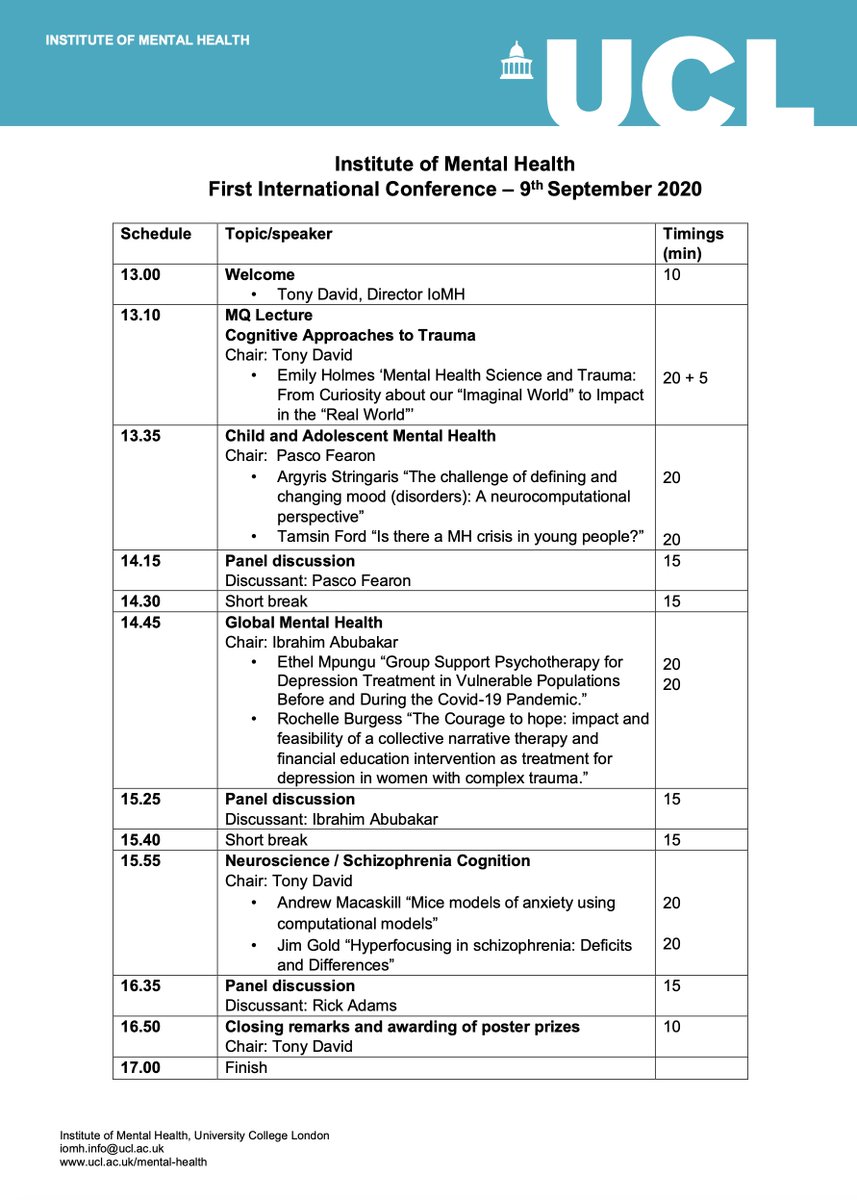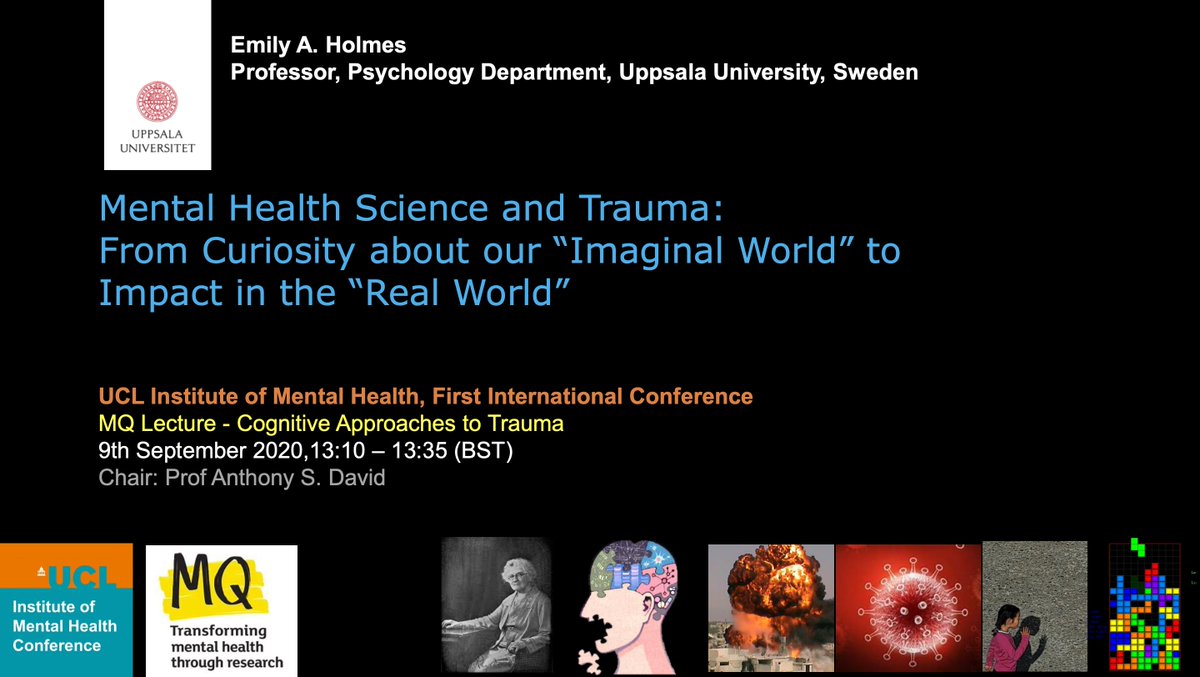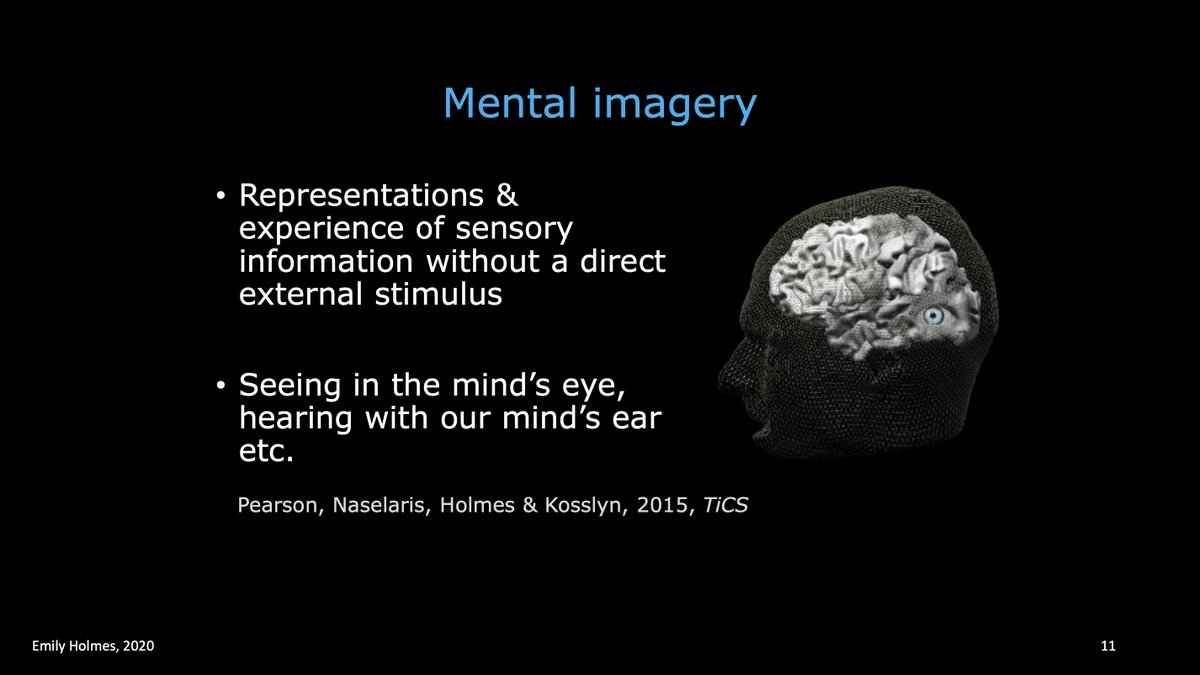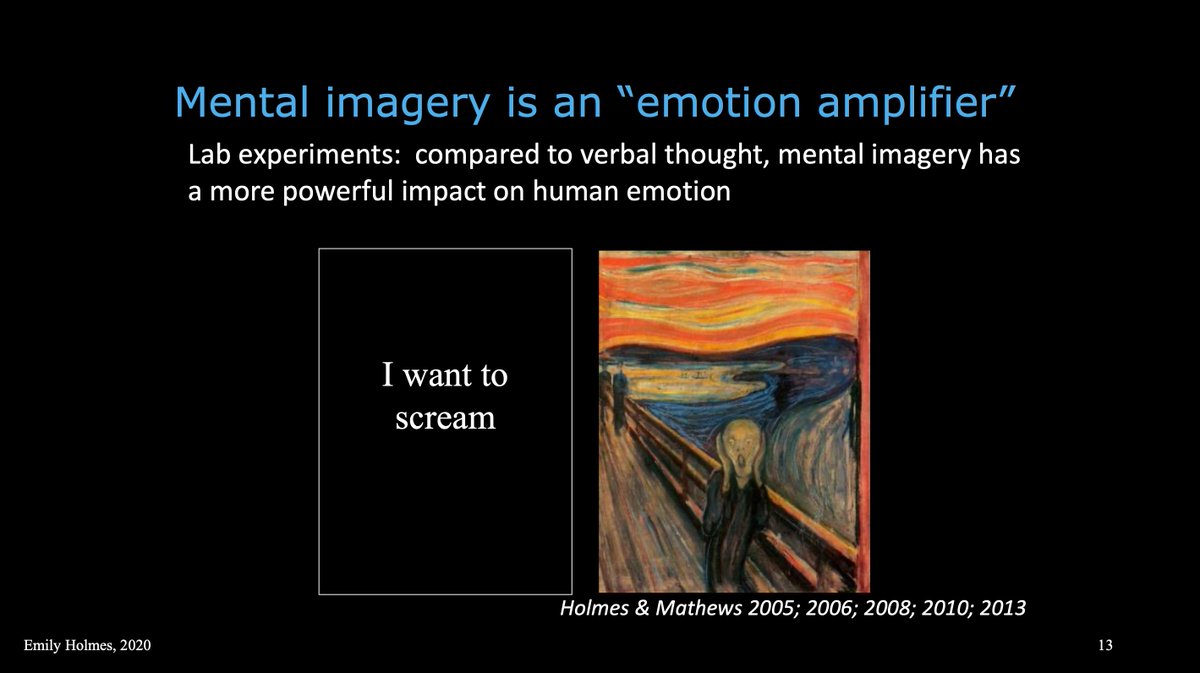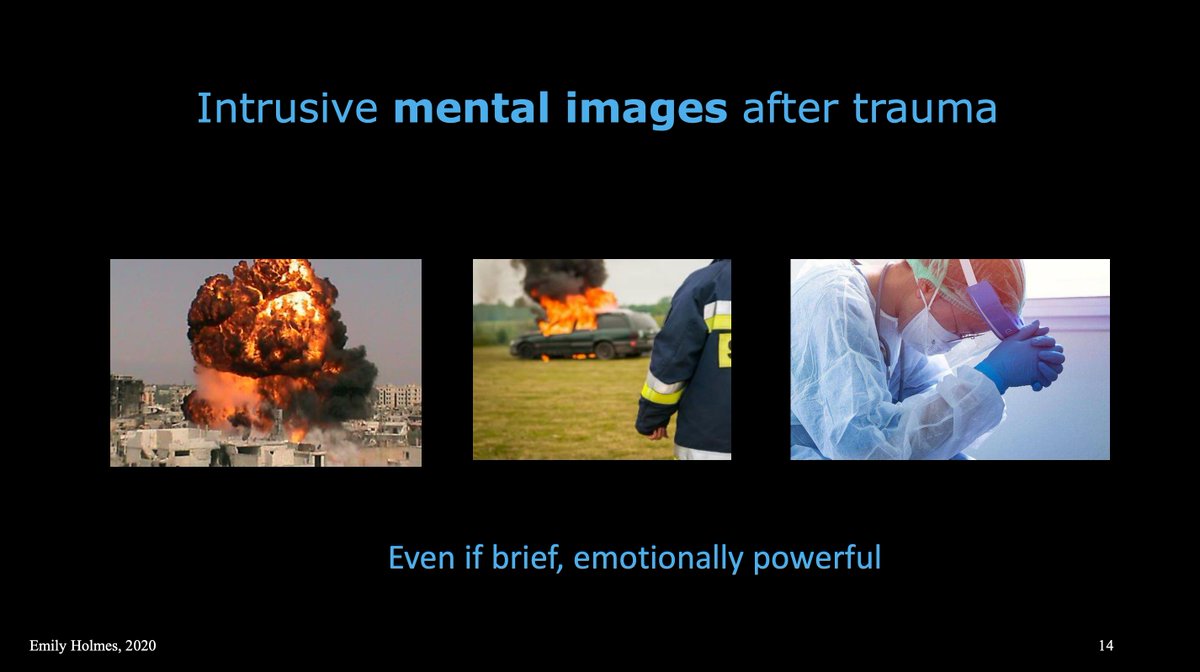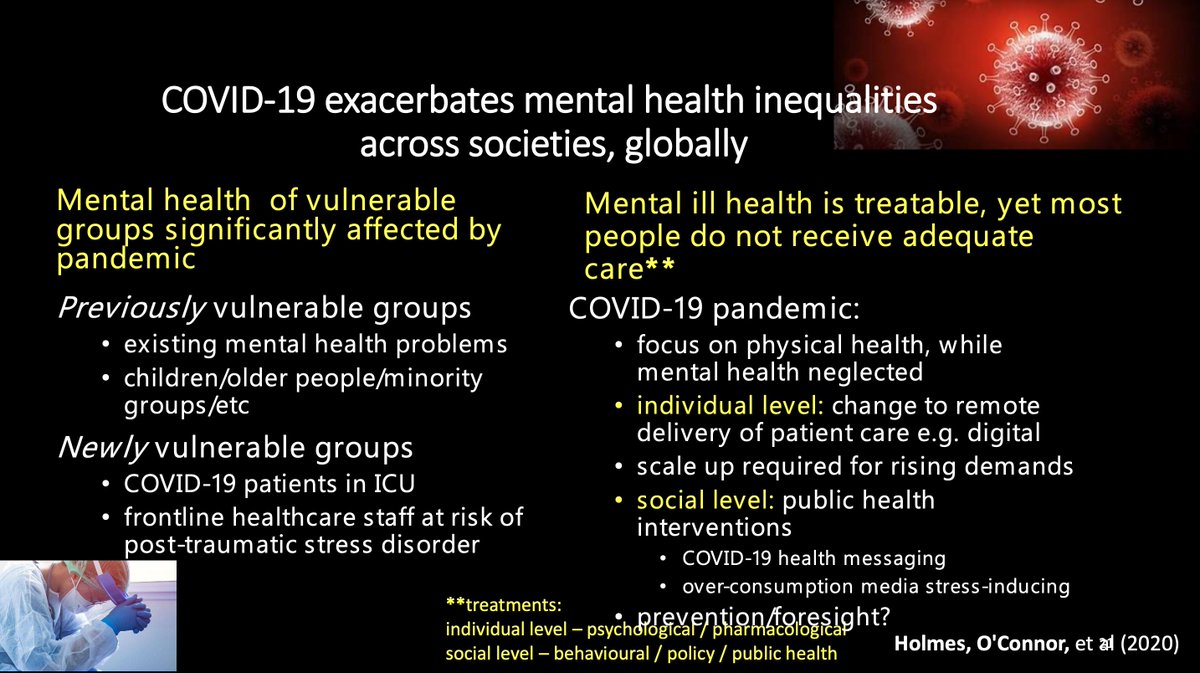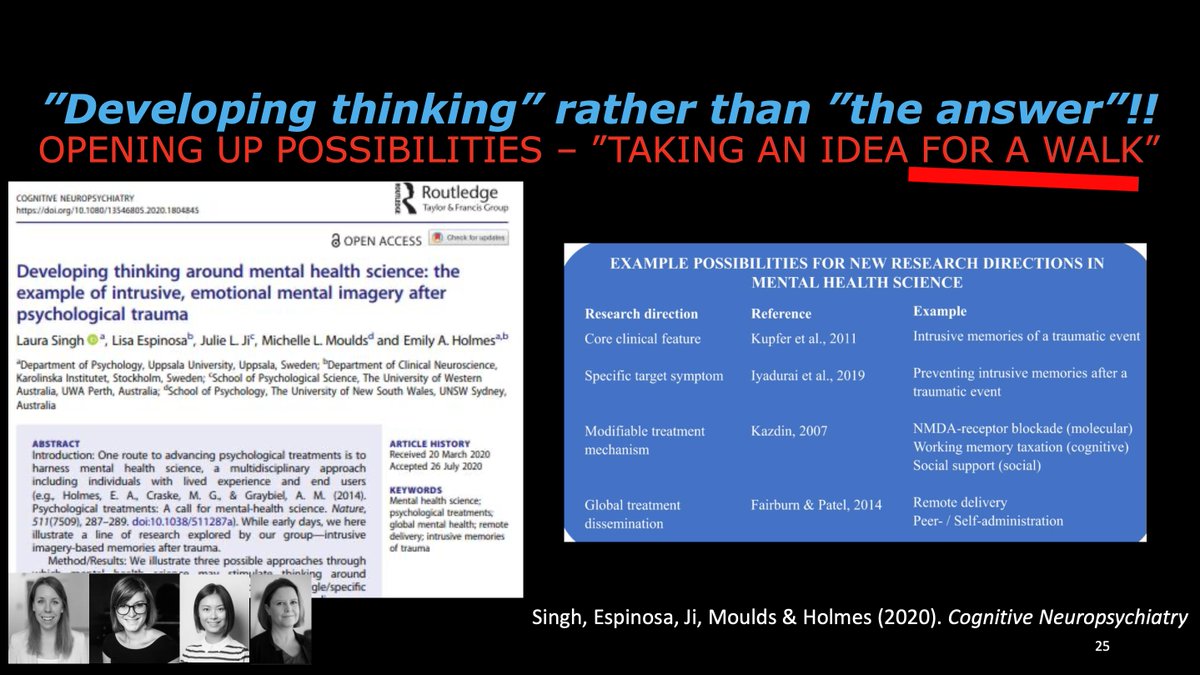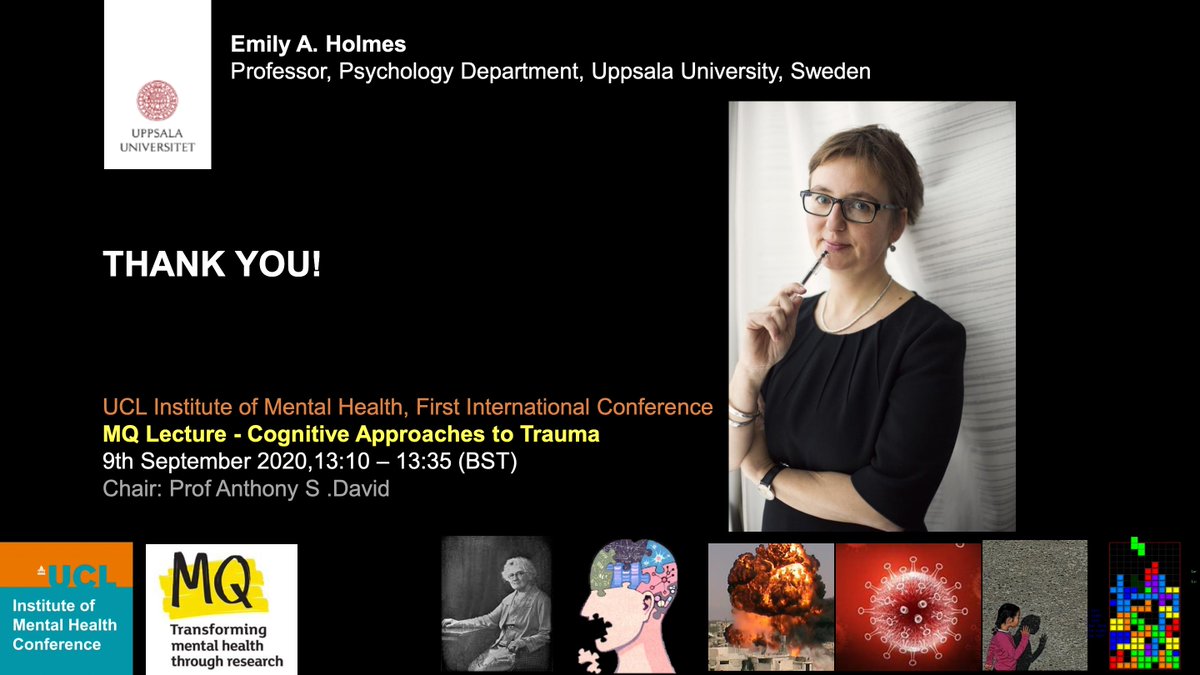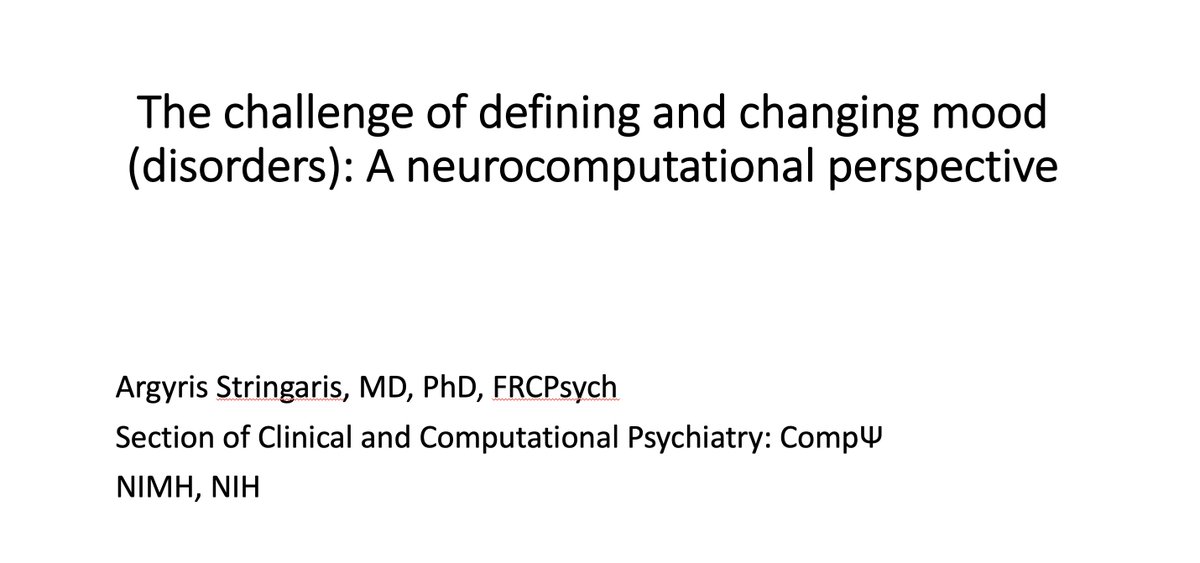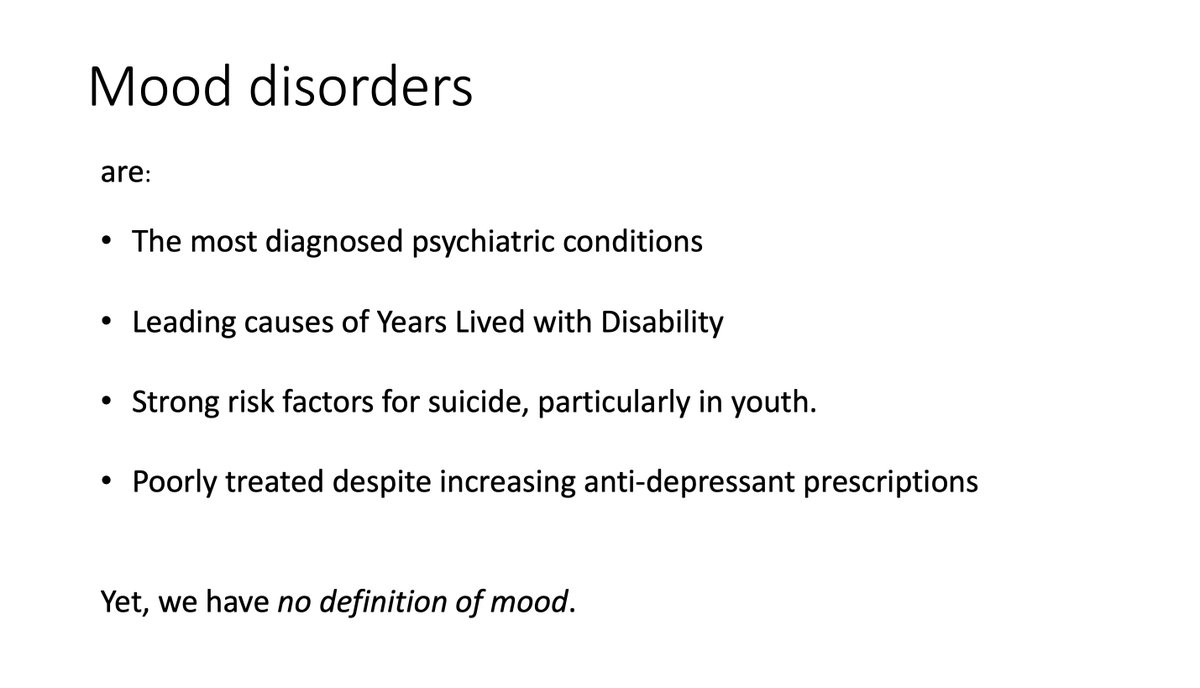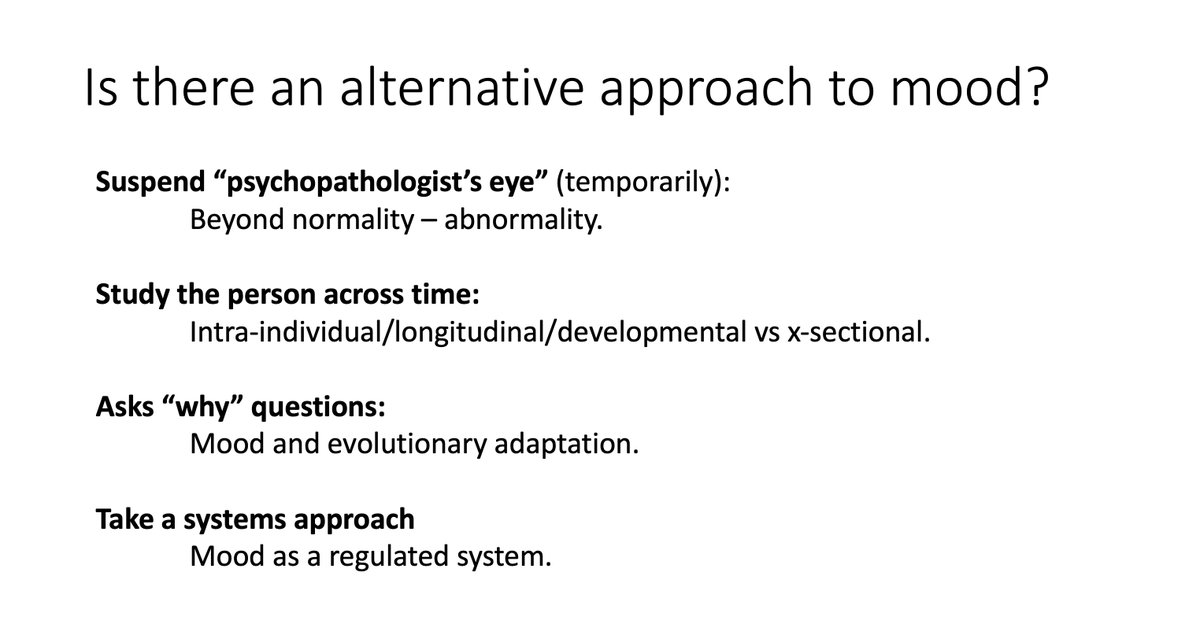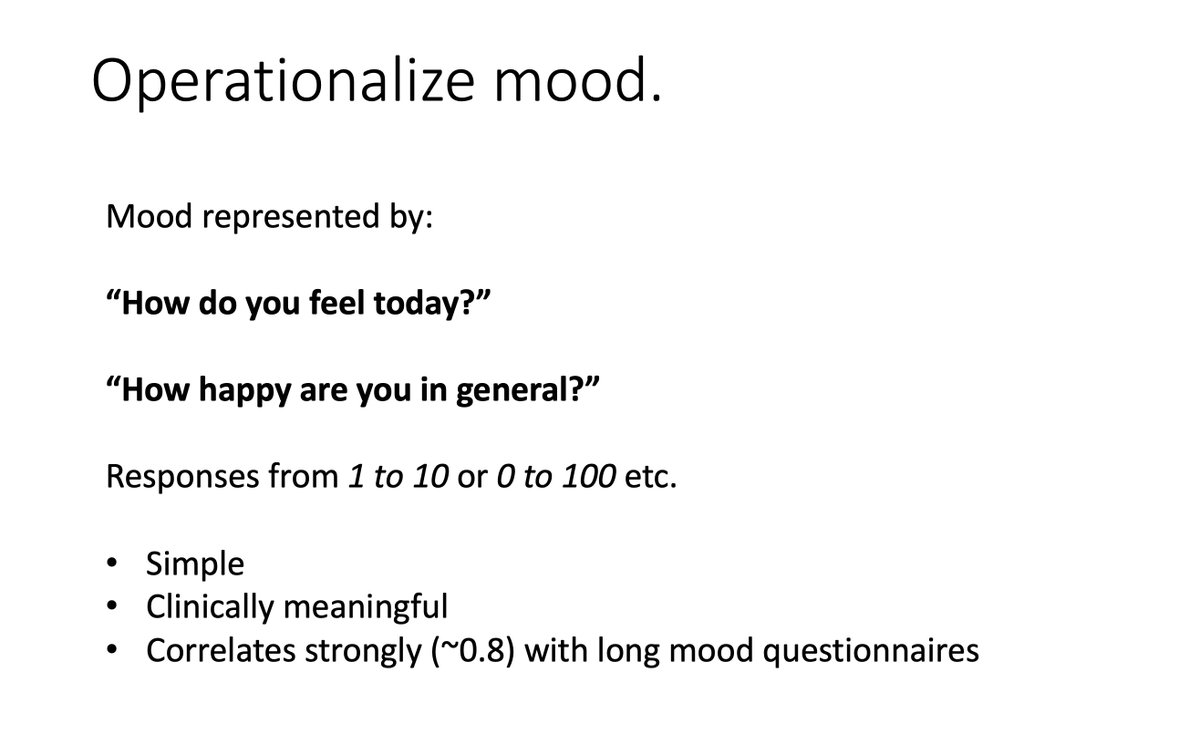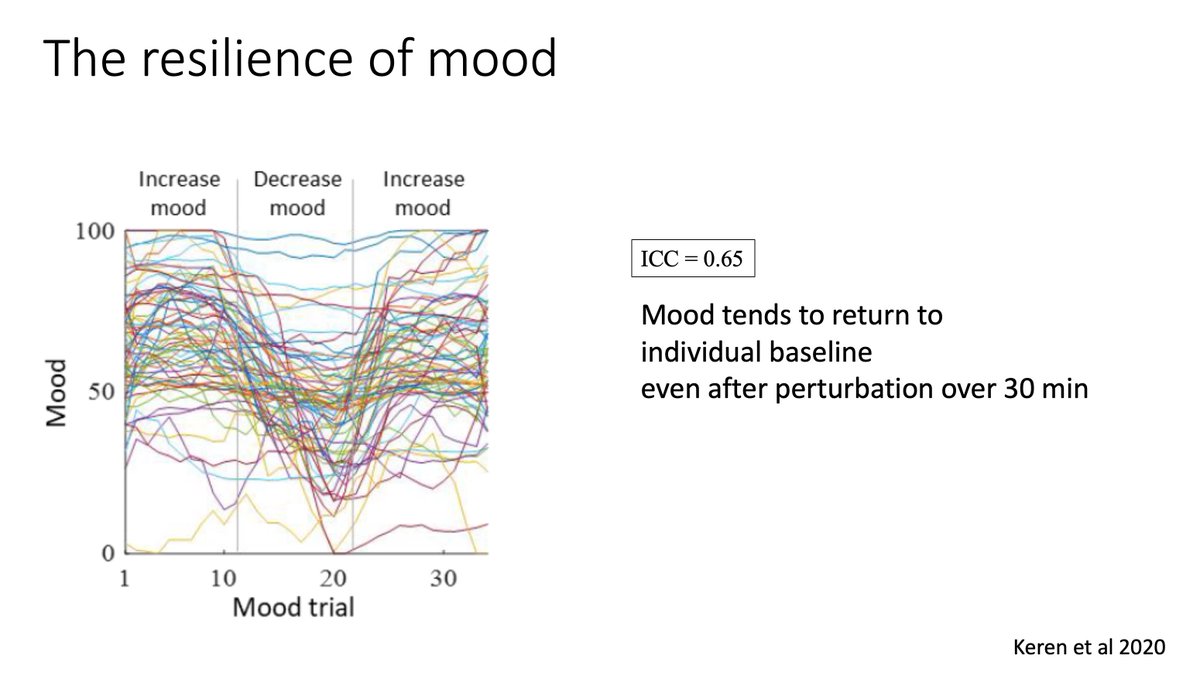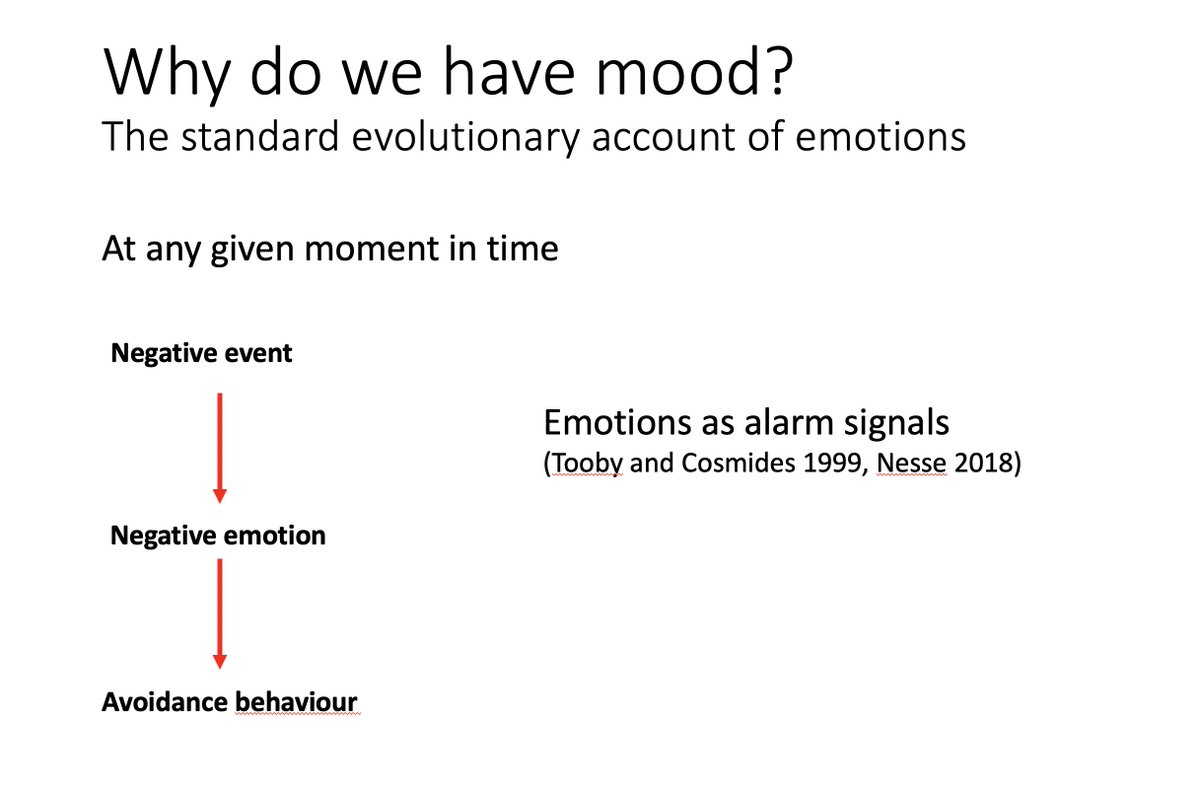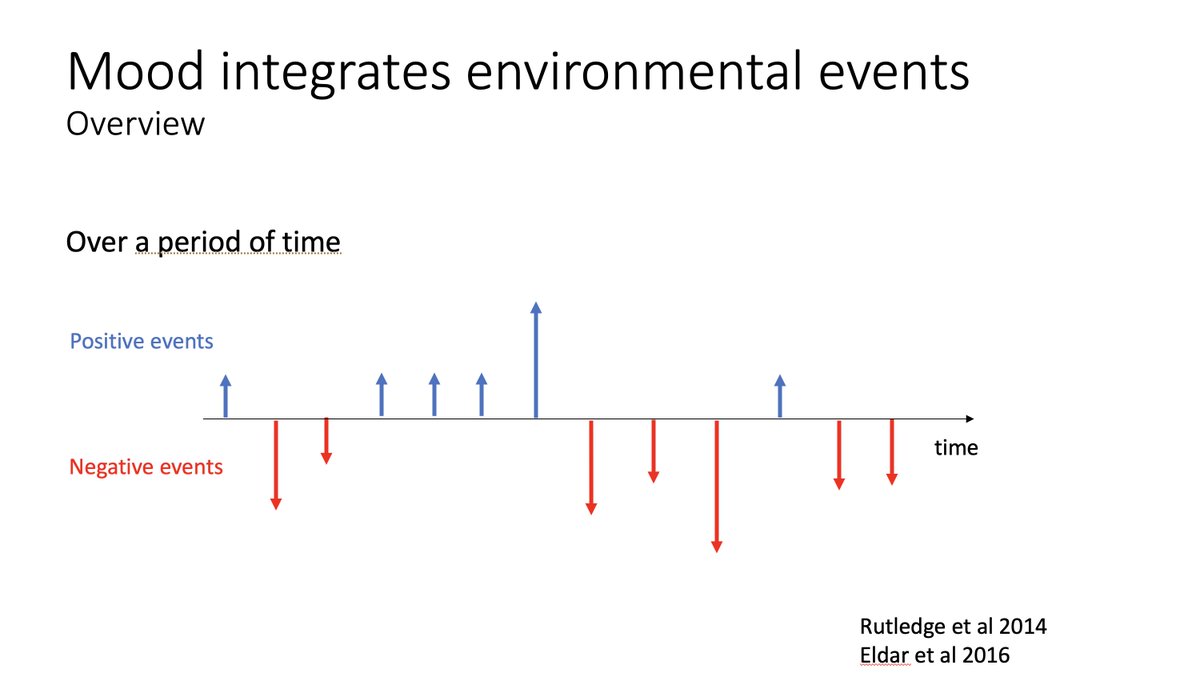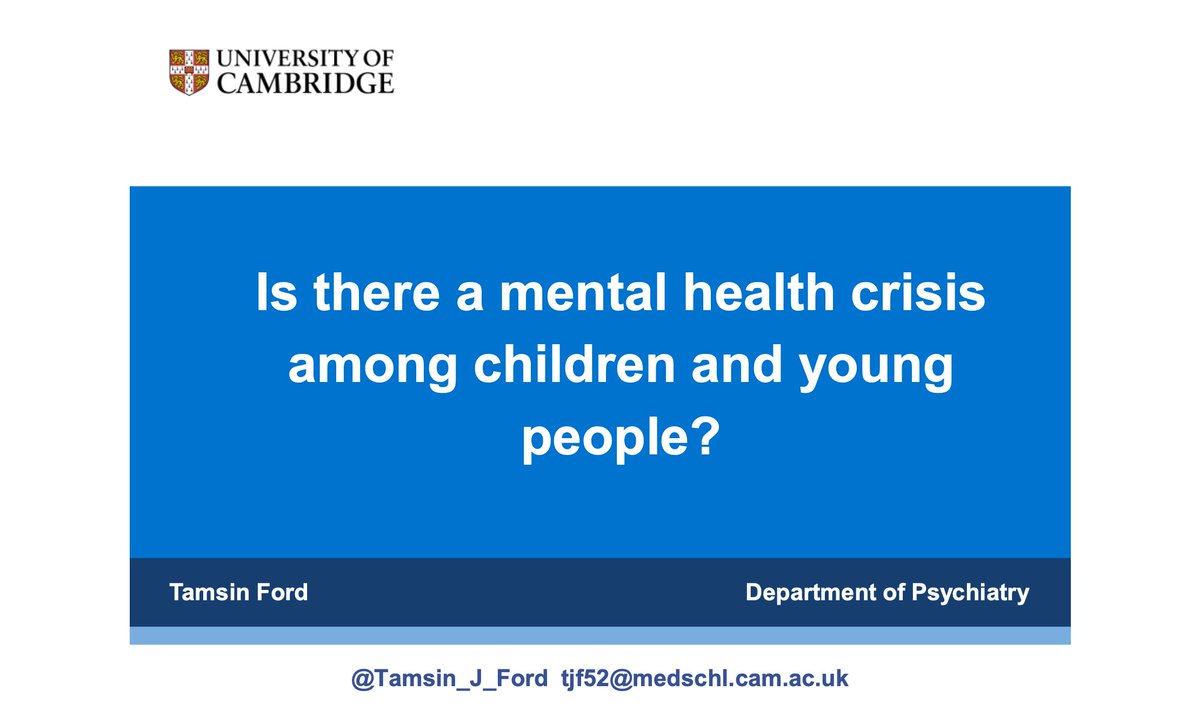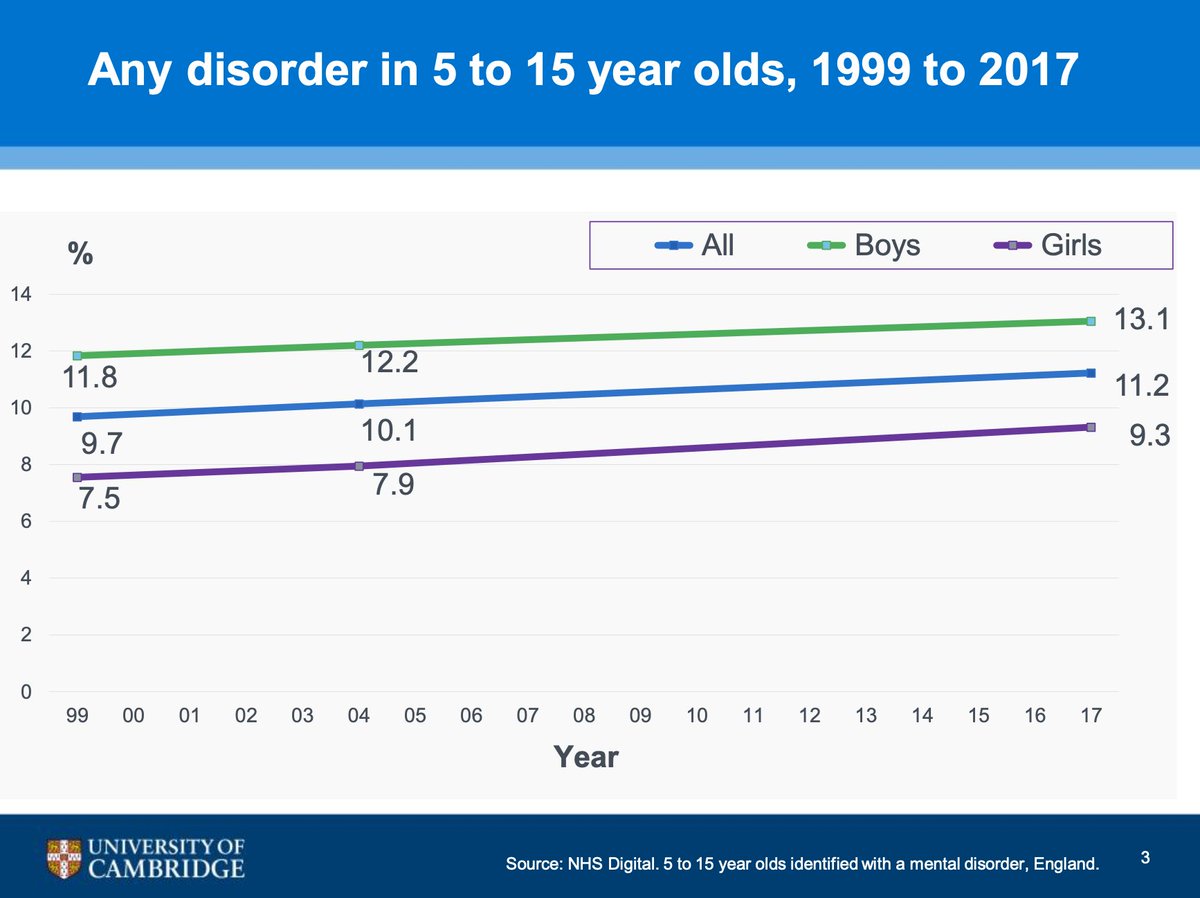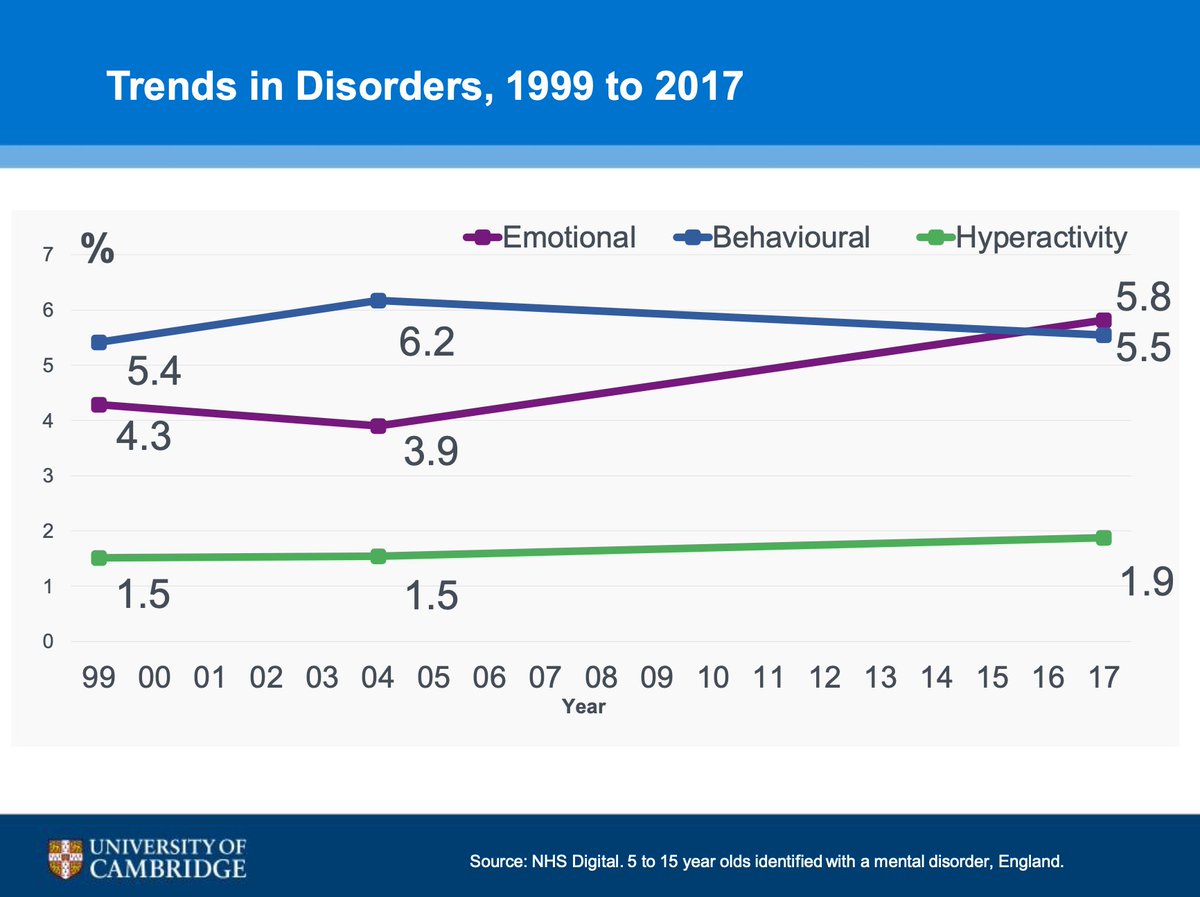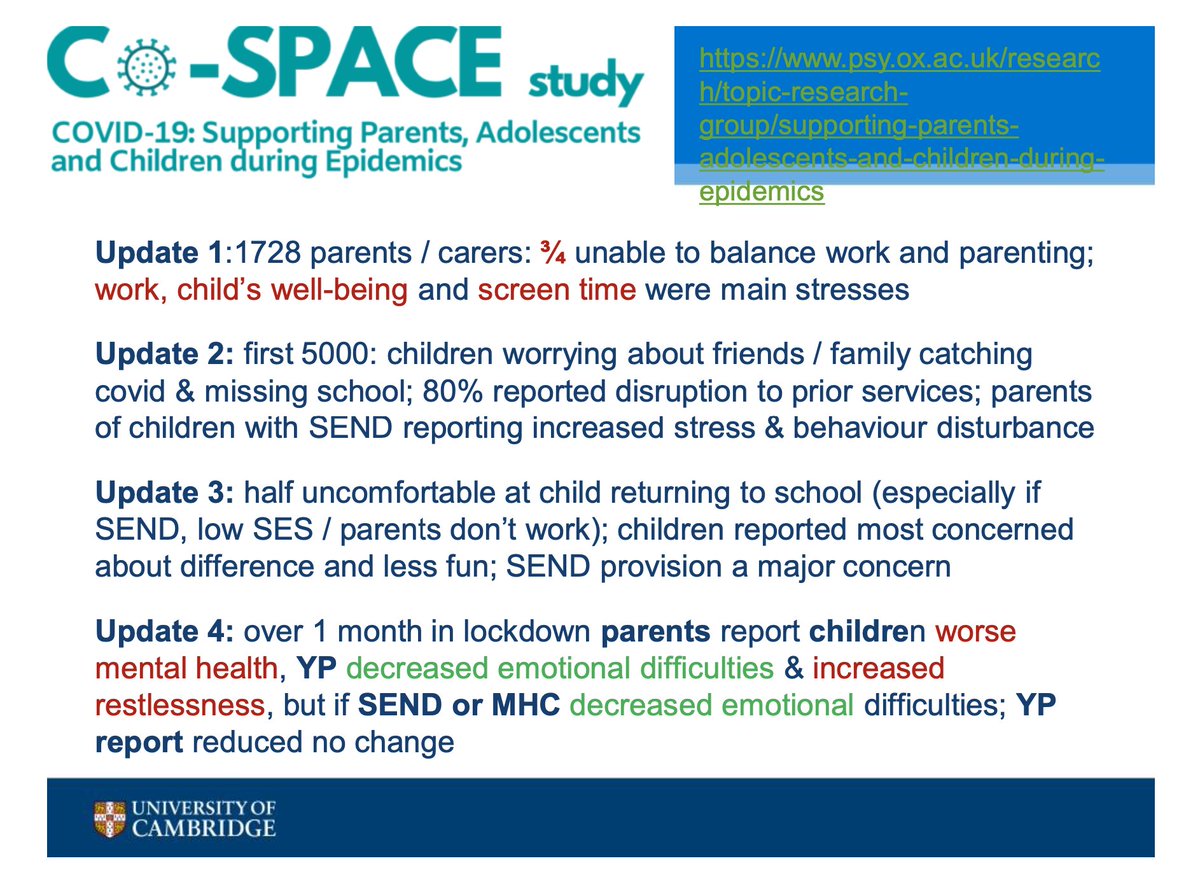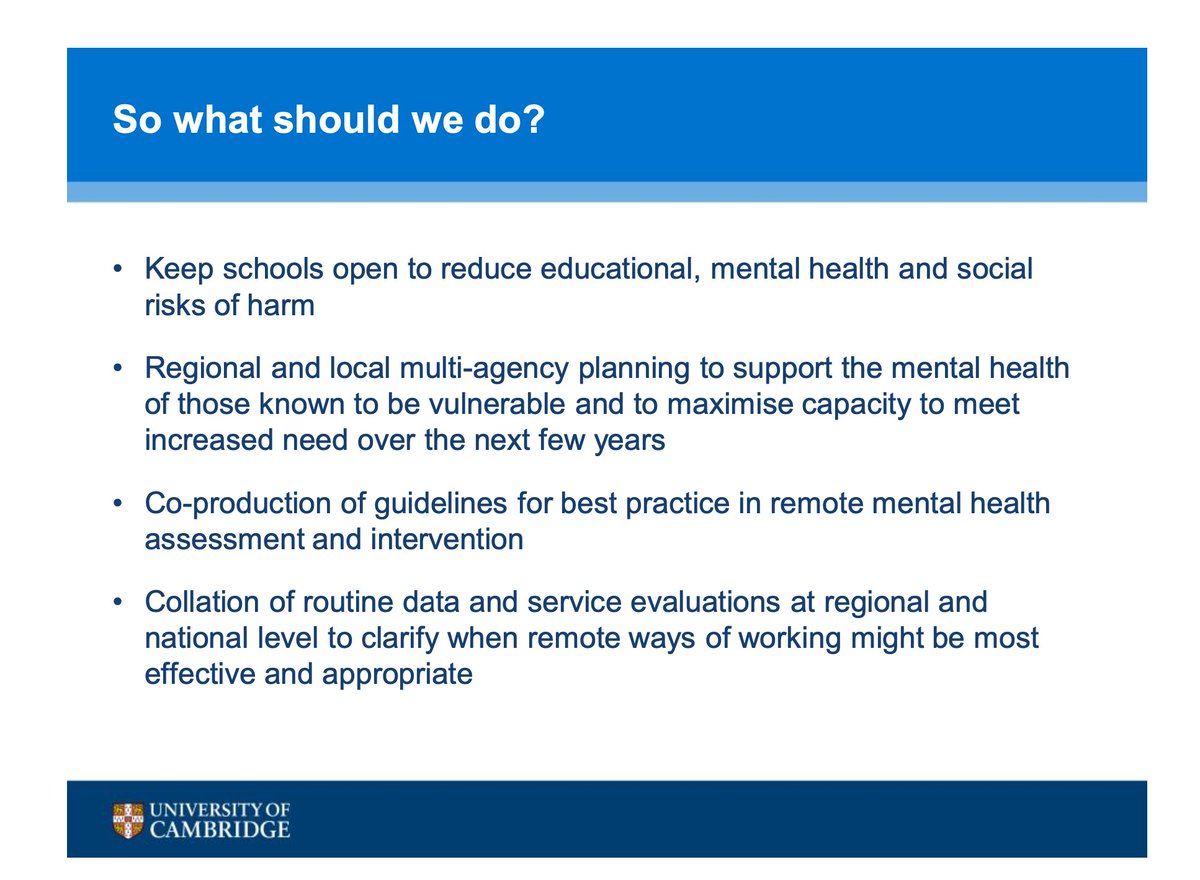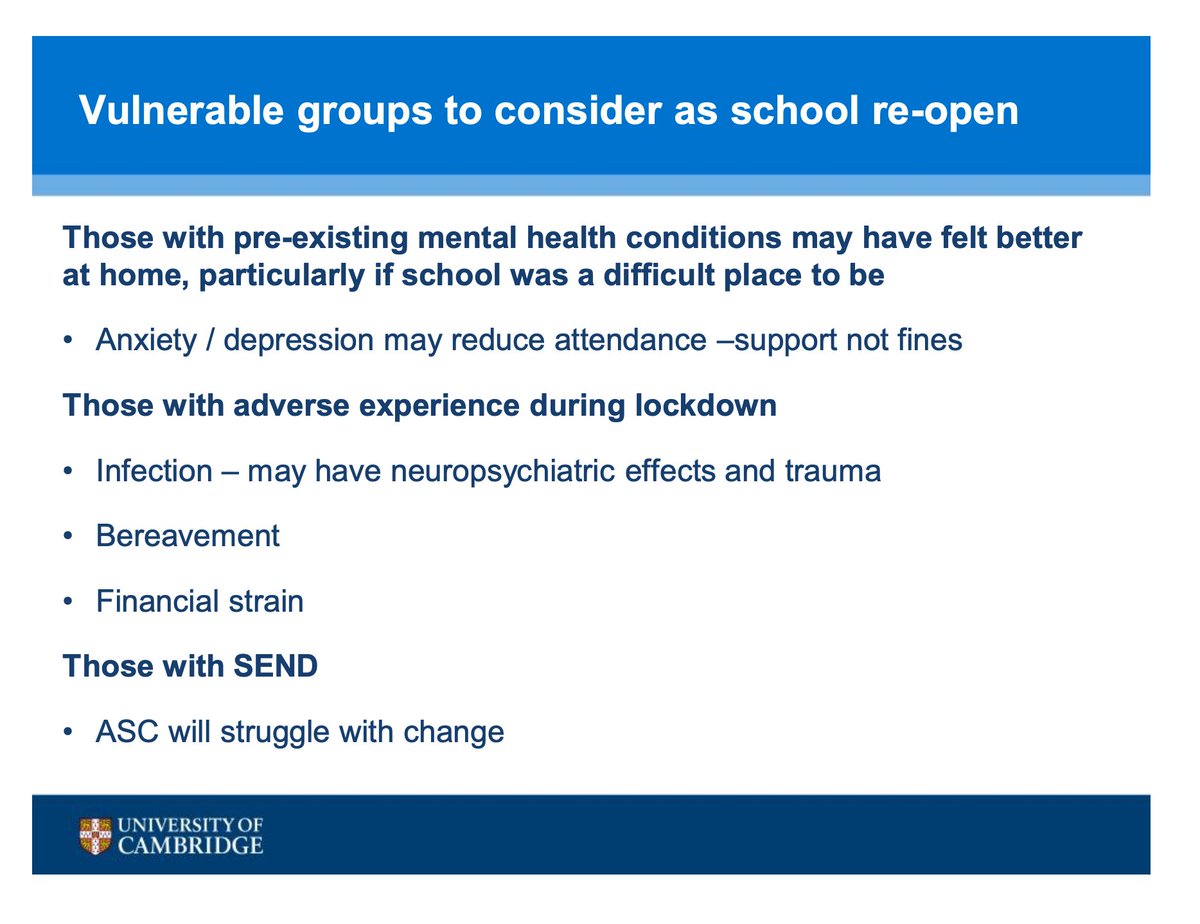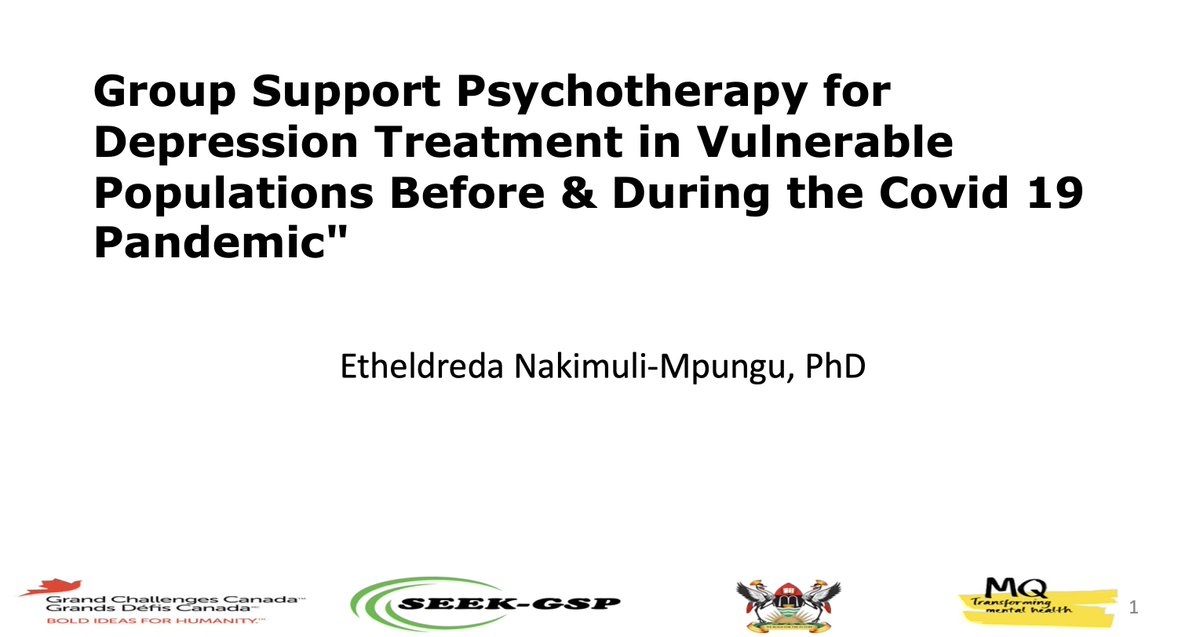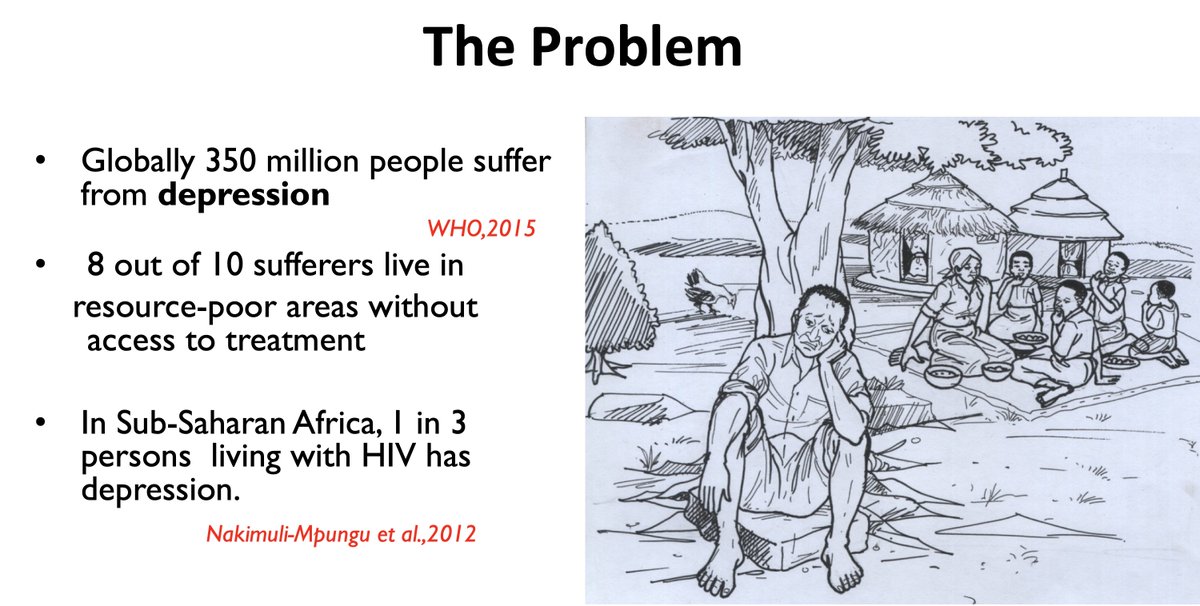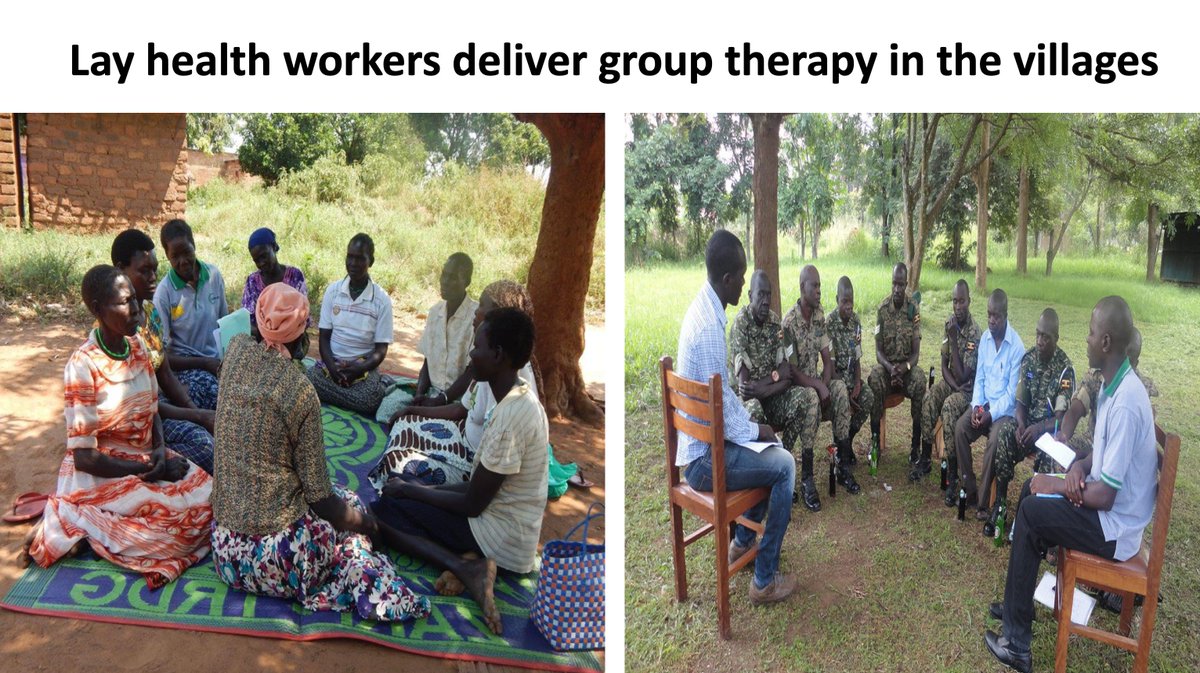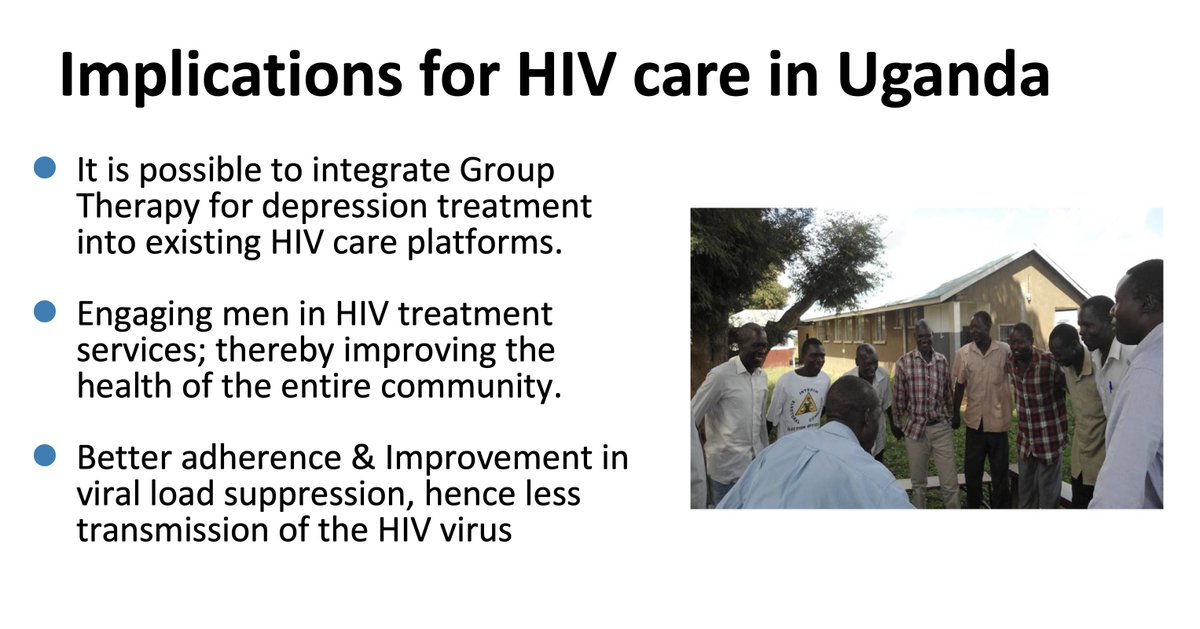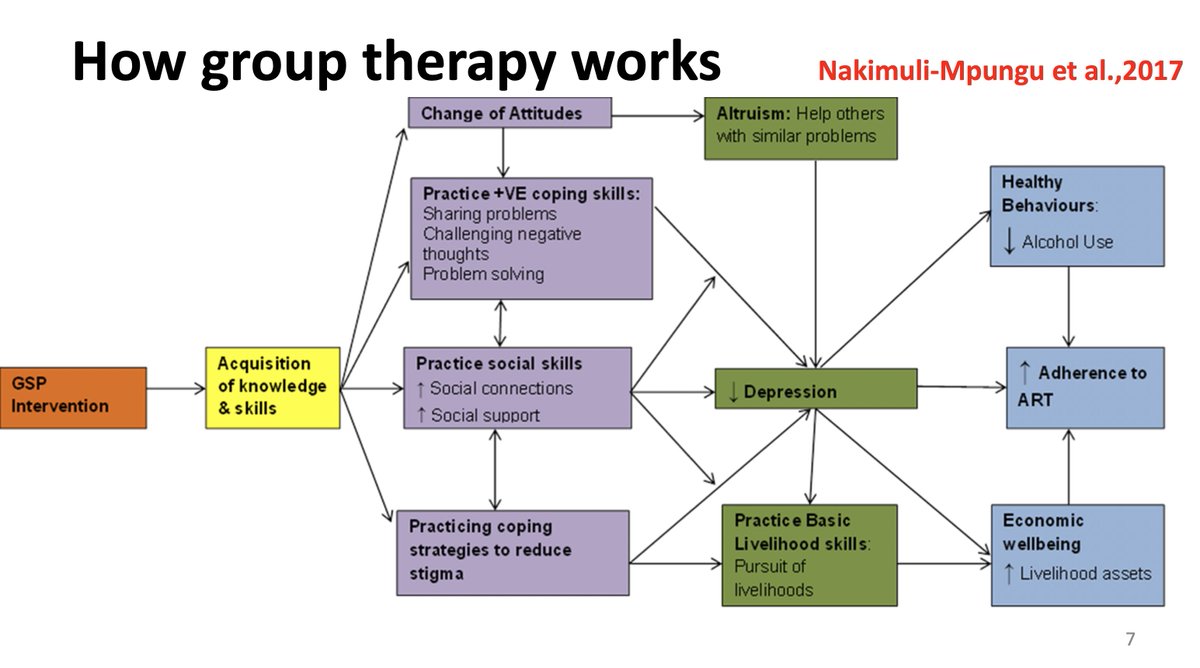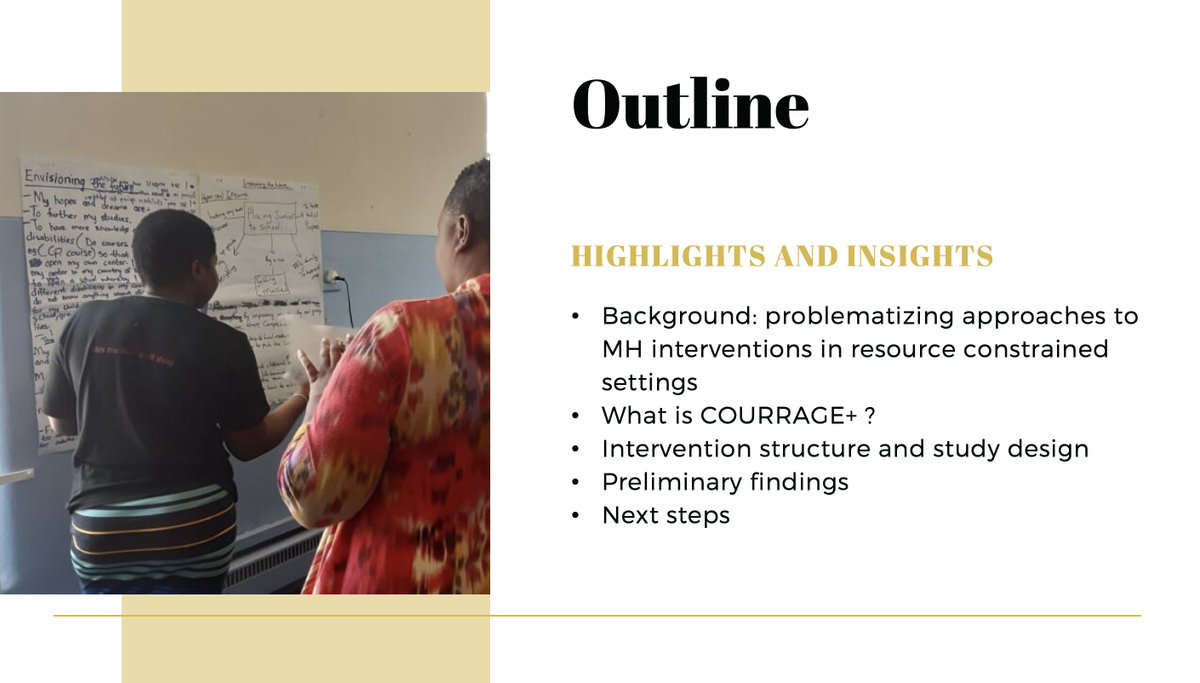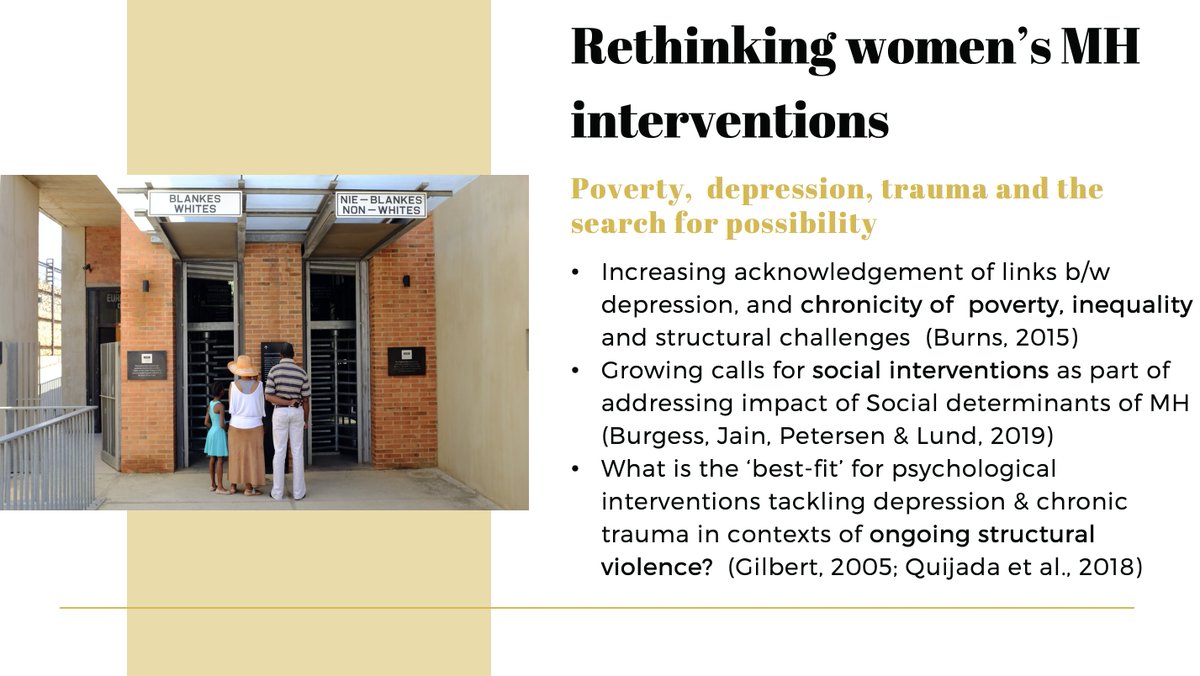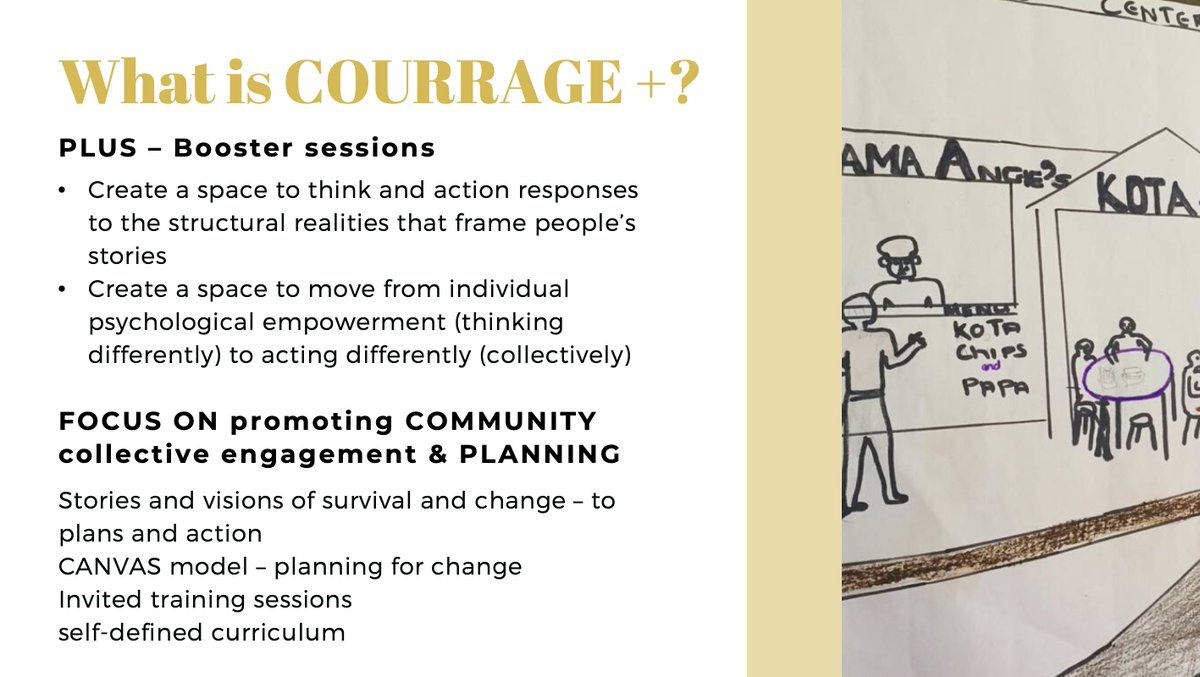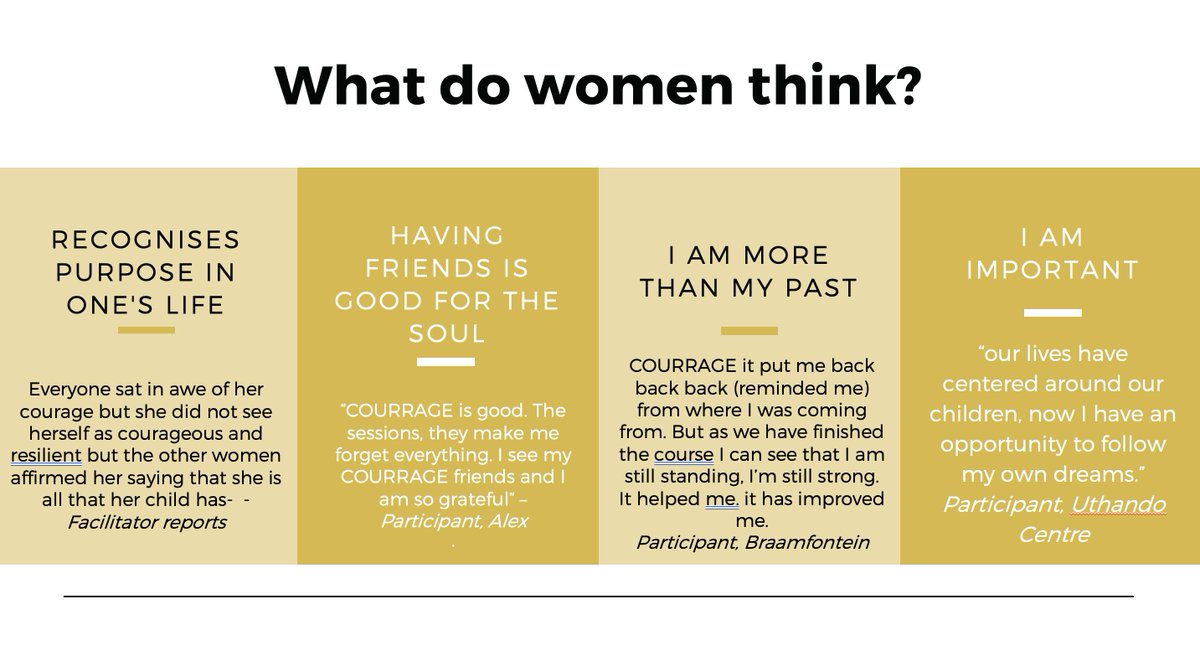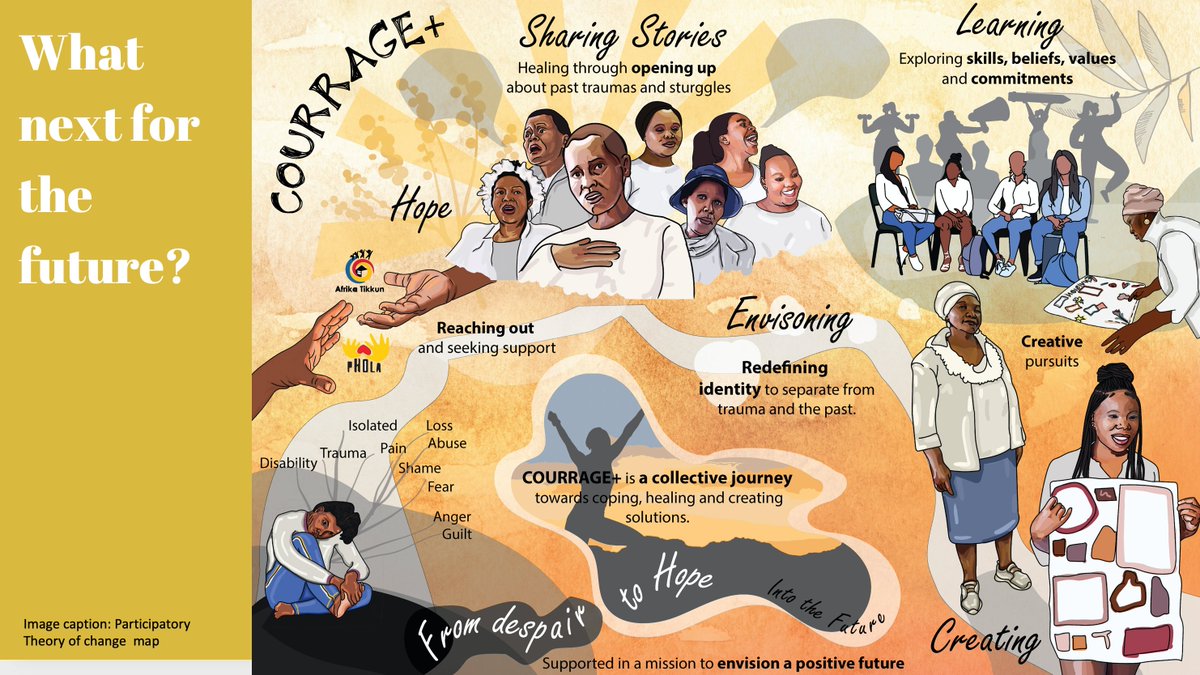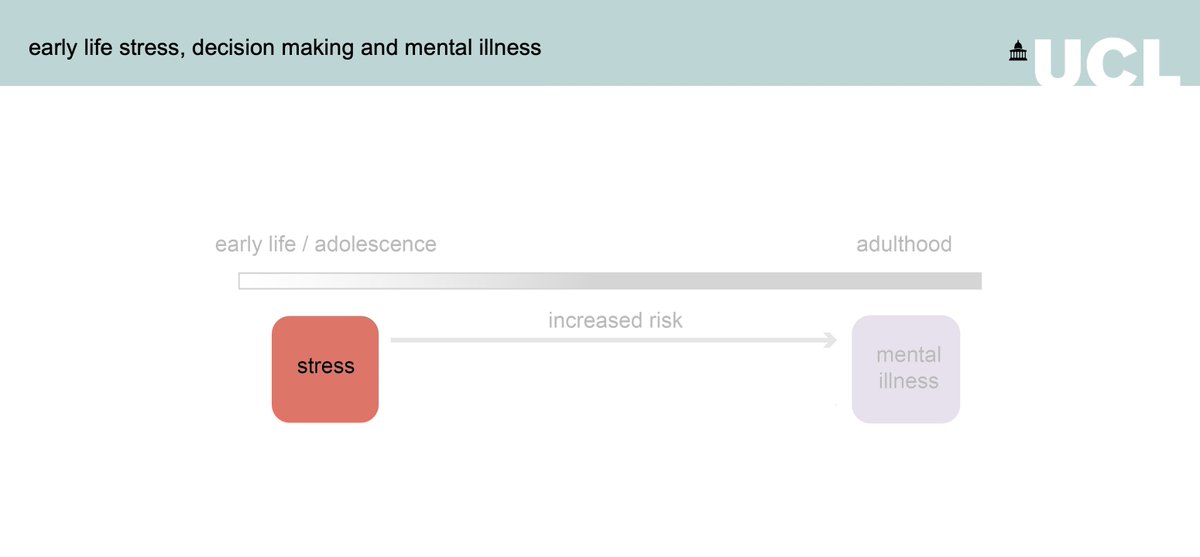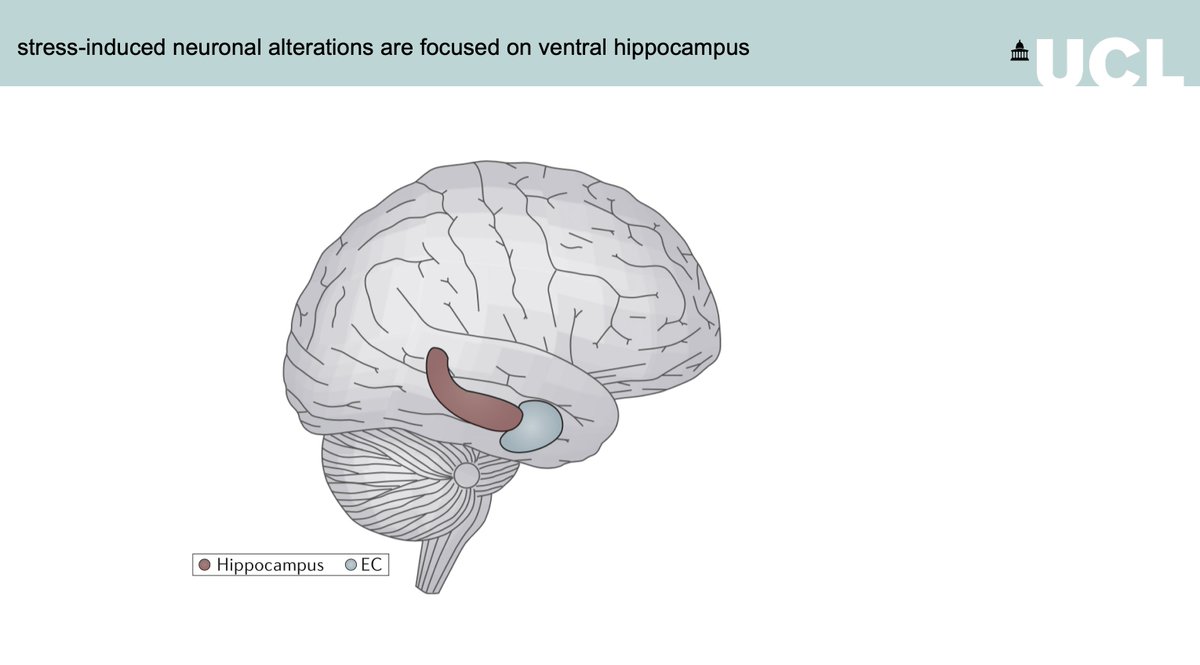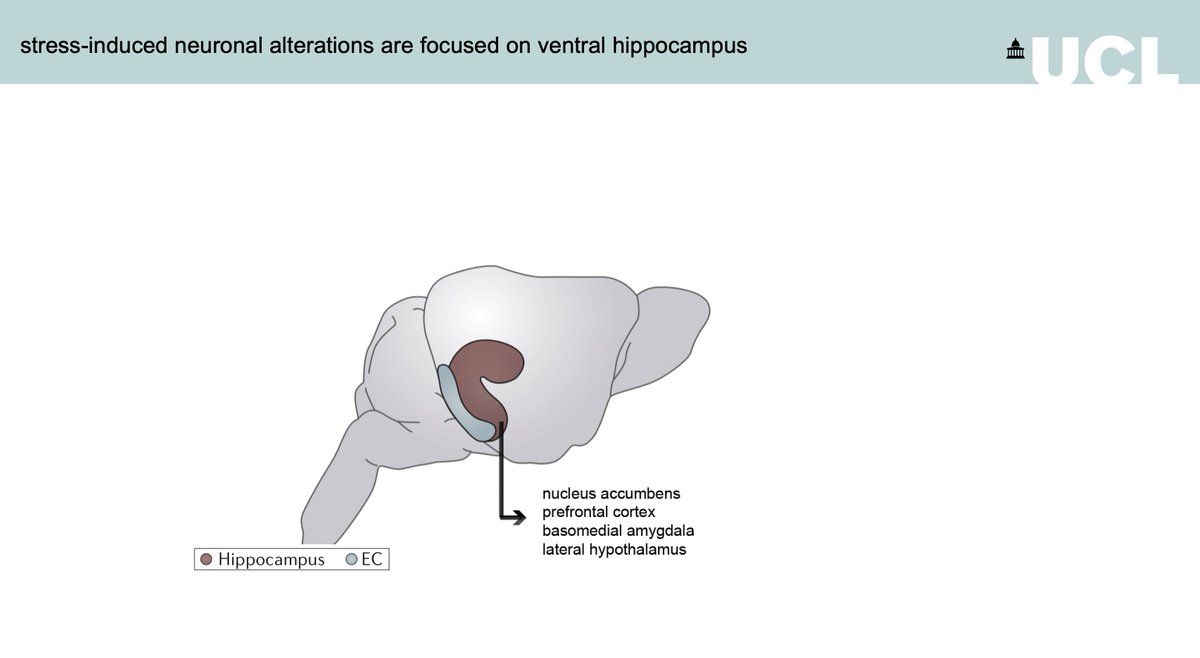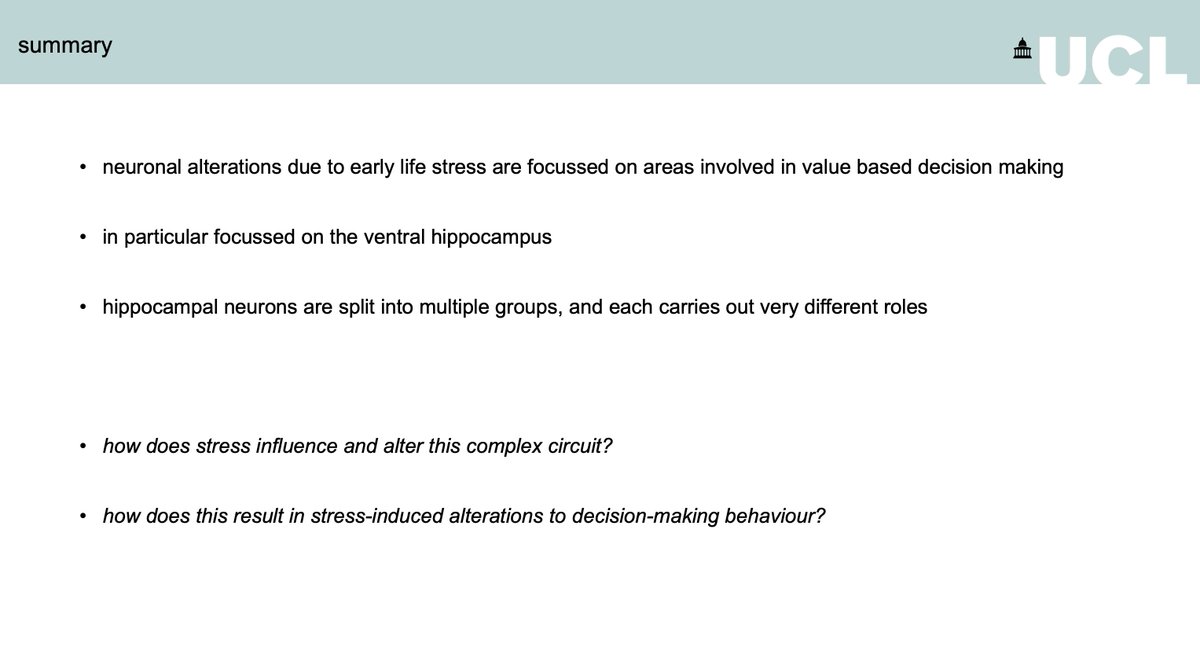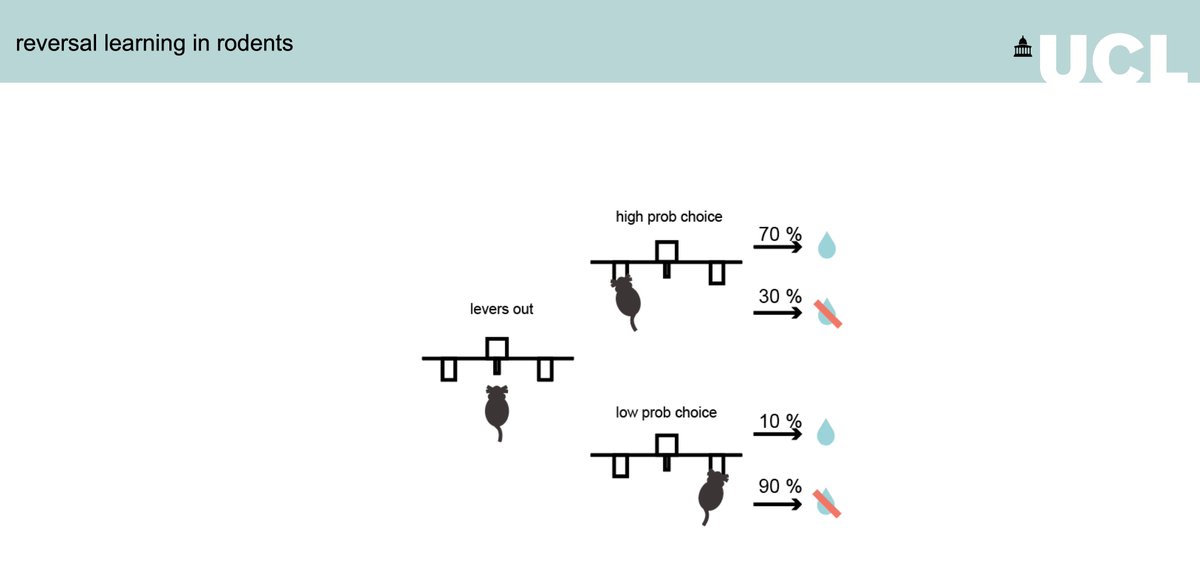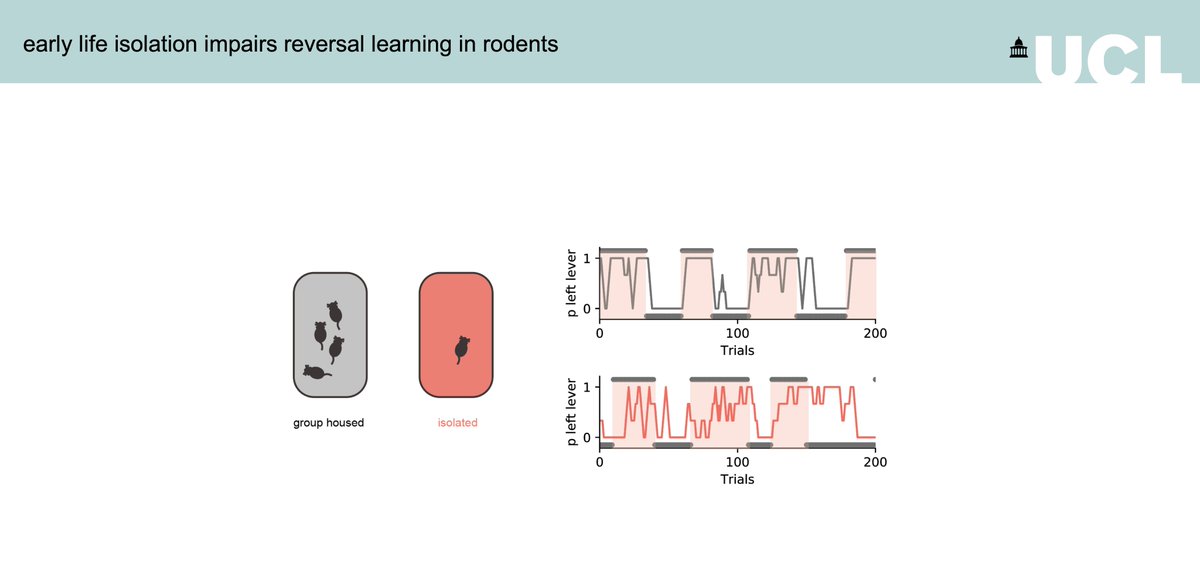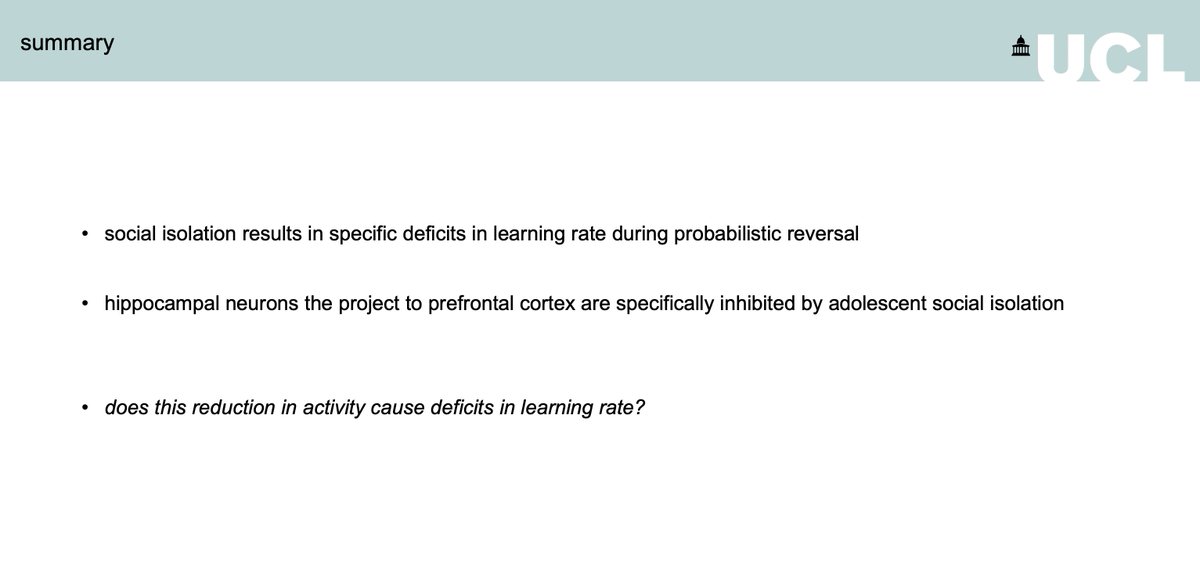A very warm welcome to @UCLMentalHealth's first international conference!
 #IoMHconf2020
#IoMHconf2020 
I’ll be live tweeting for the next 4 hours, covering research on young people’s mental health, cognitive neuroscience of psychosis, applied research & global mental health
 #IoMHconf2020
#IoMHconf2020 
I’ll be live tweeting for the next 4 hours, covering research on young people’s mental health, cognitive neuroscience of psychosis, applied research & global mental health
We have a star-studded line up today! #IoMHConf2020
Here's the agenda for the afternoon
@UCLMentalHealth @MQMentalHealth @UCLBrainScience @ProfTonyDavid @PascoFearon @ProfIAbubakar @dr_rick_adams @argStringaris @Tamsin_J_Ford @ethelmpungu @thewrittenro @MacAskillAF @jamesmgold
Here's the agenda for the afternoon
@UCLMentalHealth @MQMentalHealth @UCLBrainScience @ProfTonyDavid @PascoFearon @ProfIAbubakar @dr_rick_adams @argStringaris @Tamsin_J_Ford @ethelmpungu @thewrittenro @MacAskillAF @jamesmgold
Hello! I’m André Tomlin from the Mental Elf.
Our National Elf Service mission is to:
- Close the gap between mental health research and practice
- Support people to use the latest reliable research in their day-to-day lives
Follow me!
#IoMHconf2020 https://www.nationalelfservice.net/mental-health/
Our National Elf Service mission is to:
- Close the gap between mental health research and practice
- Support people to use the latest reliable research in their day-to-day lives
Follow me!
#IoMHconf2020 https://www.nationalelfservice.net/mental-health/
Our Chair today at #IoMHconf2020 is @ProfTonyDavid Director of @UCLMentalHealth, a virtual institute which launched on 16th July 2019. Here’s the launch video from a year ago:
. @ProfTonyDavid welcomes delegates to the #IoMHconf2020 international conference.
Speakers:
Emily Holmes
@argStringaris
@Tamsin_J_Ford
@ethelmpungu
@thewrittenro
@MacAskillAF
@jamesmgold
Chairs:
@PascoFearon
@ProfIAbubakar
@dr_rick_adams https://www.ucl.ac.uk/mental-health/institute-mental-health-international-conference
Speakers:
Emily Holmes
@argStringaris
@Tamsin_J_Ford
@ethelmpungu
@thewrittenro
@MacAskillAF
@jamesmgold
Chairs:
@PascoFearon
@ProfIAbubakar
@dr_rick_adams https://www.ucl.ac.uk/mental-health/institute-mental-health-international-conference
There are a few hundred people in the online meeting, which I’ll be live tweeting between now and 5pm UK time (BST). You can follow everything at #IoMHconf2020 and tweet me your comments and questions for the speakers.
In his pre- #IoMHconf2020 blog @ProfTonyDavid asked the speakers: "What is the single most important scientific/clinical question in our field right now?"
Here's what some of them said:
Here's what some of them said:
@jamesmgold “When will clinical neuroscience actually impact clinical care at a large scale?”
@ethelmpungu “How interventions work and for whom”
@argStringaris “What is mood and how to influence it?”
#IoMHconf2020
@ethelmpungu “How interventions work and for whom”
@argStringaris “What is mood and how to influence it?”
#IoMHconf2020
@PascoFearon “How can we make programmatic mental health prevention really work? It’s one of the holy grails of the field, but it’s fraught with difficulties.”
#IoMHconf2020
#IoMHconf2020
@Tamsin_J_Ford “The impact of Covid and the recession on the mental health and development of children and young people”
#IoMHconf2020
#IoMHconf2020
BUT what do YOU think?
What is the single most important scientific/clinical question in mental health science right now?
Answers in a tweet and don't forget the hashtag?
#IoMHconf2020
What is the single most important scientific/clinical question in mental health science right now?
Answers in a tweet and don't forget the hashtag?
#IoMHconf2020
Our first speaker is Prof Emily Holmes (not on Twitter) from @UU_University @karolinskainst
Her @MQmentalhealth Lecture on Cognitive Approaches to Trauma is:
Mental Health Science and Trauma - From Curiosity about our “Imaginal World” to Impact in “Real World”
#IoMHconf2020
Her @MQmentalhealth Lecture on Cognitive Approaches to Trauma is:
Mental Health Science and Trauma - From Curiosity about our “Imaginal World” to Impact in “Real World”
#IoMHconf2020
...expect this over the next 20 mins:
#Cognitive Approaches to #Trauma
Emily Holmes speaking at #IoMHConf2020
- Treatment innovation is needed
- When we think, we can use words or imagine. #MentalImagery is like perception
- Intrusive memories of trauma comprise mental images
#Cognitive Approaches to #Trauma
Emily Holmes speaking at #IoMHConf2020
- Treatment innovation is needed
- When we think, we can use words or imagine. #MentalImagery is like perception
- Intrusive memories of trauma comprise mental images
Back in 2014, Emily Holmes published a commentary in @nature calling for mental-health clinicians and neuroscientists to work together to understand and improve psychological treatments.
How far have we progressed in the last 6 years?
https://www.nature.com/news/psychological-treatments-a-call-for-mental-health-science-1.15541
#IoMHConf2020
How far have we progressed in the last 6 years?
https://www.nature.com/news/psychological-treatments-a-call-for-mental-health-science-1.15541
#IoMHConf2020
Back in 2018, @TheLancetPsych Commission on psychological treatments #SeeingFurther (led by Emily Holmes) set an agenda for how to advance research on psychological treatments.
We blogged it: https://elfi.sh/2G4covR & podcasted it: https://soundcloud.com/national-elf-service/sets/seeingfurther-psychological
#IoMHconf2020
We blogged it: https://elfi.sh/2G4covR & podcasted it: https://soundcloud.com/national-elf-service/sets/seeingfurther-psychological
#IoMHconf2020
At #IoMHconf2020 Emily Holmes is highlighting the multidisciplinary research priorities COVID-19 call for action that she led, which was published in @TheLancetPsych back in April https://doi.org/10.1016/S2215-0366(20)30168-1
You can read the summary of this paper we published on The Mental Elf by @DrAPitman @soniajohnson and @DocBloomfield here https://elfi.sh/3bIRvmG #IoMHconf2020
Developing thinking around mental health science: the example of intrusive, emotional mental imagery after psychological trauma https://doi.org/10.1080/13546805.2020.1804845
Cited by Emily Holmes at #IoMHconf2020
Cited by Emily Holmes at #IoMHconf2020
Emily Holmes is citing about the Tetris/PTSD RCT she worked on recently: Preventing intrusive memories after trauma..., which we blogged about here - thanks again @IoanaA_Cristea! https://elfi.sh/2u8vo7d #IoMHconf2020
Really brilliant talk from Emily Holmes at #IoMHconf2020
Do you have any questions about #MentalImagery or anything else related to her work in mental health science?
@UCLMentalHealth @MQmentalhealth
Do you have any questions about #MentalImagery or anything else related to her work in mental health science?
@UCLMentalHealth @MQmentalhealth
Now we're moving on to the Child and Adolescent Mental Health section of the programme, chaired by @PascoFearon
Talks coming up from @argStringaris and @Tamsin_J_Ford
#IoMHconf2020
Check out our Youth Mental Elf blogs if this is your bag: https://www.nationalelfservice.net/tag/youth-mental-health/
Talks coming up from @argStringaris and @Tamsin_J_Ford
#IoMHconf2020
Check out our Youth Mental Elf blogs if this is your bag: https://www.nationalelfservice.net/tag/youth-mental-health/
Next up is a child psychiatrist, Prof Argyris Stringaris @argStringaris who is based at the Section of Clinical & Computational Psychiatry at @NIMHgov
His talk is entitled: The challenge of defining and changing mood (disorders): a neurocomputational perspective #IoMHconf2020
His talk is entitled: The challenge of defining and changing mood (disorders): a neurocomputational perspective #IoMHconf2020
. @argStringaris is speaking now at #IoMHconf2020
He will cover:
-Think of intra-individual change rather than group differences
-Examine 3 key phenomena of mood: integration, rest dysphoria, stability
-Consider implications of mood characteristics for depression & its treatment
He will cover:
-Think of intra-individual change rather than group differences
-Examine 3 key phenomena of mood: integration, rest dysphoria, stability
-Consider implications of mood characteristics for depression & its treatment
Mood disorders are the source of great disability, personal burden and premature death worldwide. Yet, we lack a definition of mood, says @argStringaris at #IoMHconf2020
. @argStringaris argues that our standard accounts of mood disorders, based on "arbitrary dichotomies between disease and normality", are an obstacle to our understanding #IoMHconf2020
“Is depression one disorder that comes in different shades of severity or is it best thought of as heterogeneous mix of problems that we have given one common name to?"
What is depression? An editorial in @TheJCPP by @argStringaris #IoMHconf2020 https://doi.org/10.1111/jcpp.12844
What is depression? An editorial in @TheJCPP by @argStringaris #IoMHconf2020 https://doi.org/10.1111/jcpp.12844
. @argStringaris proposes a different approach to understanding mood disorders that "prioritises intra-individual change over group or individual differences” #IoMHconf2020
Mood has distinct characteristics:
-integration over time (past info incorporated into how we feel)
-resting state dysphoria (low levels of stimulation impact on mood)
-mood stability (we regularly return to same baseline mood)
@argStringaris at #IoMHconf2020
-integration over time (past info incorporated into how we feel)
-resting state dysphoria (low levels of stimulation impact on mood)
-mood stability (we regularly return to same baseline mood)
@argStringaris at #IoMHconf2020
The temporal representation of experience in subjective mood reports, by Hanna Keren et al
Cited by @argStringaris at #IoMHconf2020 https://doi.org/10.1101/815944
Cited by @argStringaris at #IoMHconf2020 https://doi.org/10.1101/815944
Great Expectations: A Critical Review of and Suggestions for the Study of Reward Processing as a Cause and Predictor of Depression, by @shotgunosine et al
https://doi.org/10.1016/j.biopsych.2020.06.012
Cited by @argStringaris at #IoMHconf2020
https://doi.org/10.1016/j.biopsych.2020.06.012
Cited by @argStringaris at #IoMHconf2020
Our next speaker is Prof @Tamsin_J_Ford Professor of Child and Adolescent Psychiatry at @psychiatry_ucam and @CPFT_Research
Her talk is entitled: Is there a mental health #crisis in young people?
Spoiler alert: her short answer is “almost certainly”.
#IoMHconf2020
Her talk is entitled: Is there a mental health #crisis in young people?
Spoiler alert: her short answer is “almost certainly”.
#IoMHconf2020
. @Tamsin_J_Ford starts at #IoMHconf2020 by talking about the history of the mental health and well-being trends among children and young people in the UK, 1995–2014: analysis of repeated cross-sectional national health surveys https://doi.org/10.1017/S0033291718001757
Pre-COVID, young people’s mental health was deteriorating, particularly among teenage girls, says @Tamsin_J_Ford at #IoMHconf2020
See:
https://doi.org/10.1111/jcpp.12372
https://doi.org/10.1111/jcpp.13029
https://doi.org/10.1016/S0140-6736(16)32329-7
https://digital.nhs.uk/data-and-information/publications/statistical/mental-health-of-children-and-young-people-in-england/2017/2017
https://doi.org/10.1016/S2215-0366(19)30188-9
See:
https://doi.org/10.1111/jcpp.12372
https://doi.org/10.1111/jcpp.13029
https://doi.org/10.1016/S0140-6736(16)32329-7
https://digital.nhs.uk/data-and-information/publications/statistical/mental-health-of-children-and-young-people-in-england/2017/2017
https://doi.org/10.1016/S2215-0366(19)30188-9
There's worrying evidence that the impact of poor mental health is worse for those born after the millennium, says @Tamsin_J_Ford at #IoMHconf2020
It's not just about mental health though, says @Tamsin_J_Ford The millennium cohort have also been hit by significant social changes #IoMHconf2020
At #IoMHconf2020 @Tamsin_J_Ford highlights this "amazing living systematic review"
https://www.depressd.ca/covid-19-mental-health
https://osf.io/v7f3q/ You can read the preprint of the child study only with pre-covid data
https://www.depressd.ca/covid-19-mental-health
https://osf.io/v7f3q/ You can read the preprint of the child study only with pre-covid data
Says who? The significance of sampling in mental health surveys during COVID-19
@Tamsin_J_Ford #IoMHconf2020
https://www.thelancet.com/action/showPdf?pii=S2215-0366%2820%2930237-6
@Tamsin_J_Ford #IoMHconf2020
https://www.thelancet.com/action/showPdf?pii=S2215-0366%2820%2930237-6
Mental health before and during the COVID-19 pandemic: a longitudinal probability sample survey of the UK population https://doi.org/10.1016/S2215-0366(20)30308-4
Cited by @Tamsin_J_Ford at #IoMHconf2020
Cited by @Tamsin_J_Ford at #IoMHconf2020
"There are a lot of worried teenagers out there"
#Pandemic #YouthMentalHealth
@EmilyWidnall’s recent survey (NIHR school for public health and University of Bristol)
https://sphr.nihr.ac.uk/wp-content/uploads/2020/08/Young-Peoples-Mental-Health-during-the-COVID-19-Pandemic-Report.pdf
Cited by @Tamsin_J_Ford #IoMHconf2020
#Pandemic #YouthMentalHealth
@EmilyWidnall’s recent survey (NIHR school for public health and University of Bristol)
https://sphr.nihr.ac.uk/wp-content/uploads/2020/08/Young-Peoples-Mental-Health-during-the-COVID-19-Pandemic-Report.pdf
Cited by @Tamsin_J_Ford #IoMHconf2020
We've seen conflicting reports about size & type of mental health impact, which may be because family situations amplify their initial situation. This may a virtuous circle in some & a vicious circle in others (shout out to @ProfMinnis) @Tamsin_J_Ford at #IoMHconf2020
The Co-Space study (COVID-19: Supporting Parents, Adolescents and Children during Epidemics) led by @Cathy_Creswell @EmergingMindsUK @topic_group is cited by @Tamsin_J_Ford at #IoMHconf2020
Check out the new website (built by elves )
)
https://cospaceoxford.org
Check out the new website (built by elves
 )
)https://cospaceoxford.org
At population level, children & young people’s mental health is likely to suffer firstly due to the COVID-19 lockdown and secondly due to the resulting economic recession @Tamsin_J_Ford at #IoMHconf2020
Safe Model for School Return during the COVID-19 Pandemic https://www.gla.ac.uk/media/Media_736441_smxx.pdf
Cited by @Tamsin_J_Ford at #IoMHconf2020
Cited by @Tamsin_J_Ford at #IoMHconf2020
Great talk at #IoMHconf2020 from @Tamsin_J_Ford:
-Young adults experiencing acceleration in deterioration of mental health
-Parents of young children badly affected, which will influence kids' MH
-There’ll be a variety of experiences, with disadvantage amplified & intersecting
-Young adults experiencing acceleration in deterioration of mental health
-Parents of young children badly affected, which will influence kids' MH
-There’ll be a variety of experiences, with disadvantage amplified & intersecting
" #Bullying is a tractable public mental health problem."
It's great to be reminded of this by @Tamsin_J_Ford at #IoMHConf2020
Time to implement the ample evidence we now have! https://elfi.sh/2mbX3h0
It's great to be reminded of this by @Tamsin_J_Ford at #IoMHConf2020
Time to implement the ample evidence we now have! https://elfi.sh/2mbX3h0
Welcome back to #IoMHConf2020 after our short break. We now have a session on Global Mental Health chaired by @ProfIAbubakar
Talks coming up by @ethelmpungu and Rochelle Burgess @thewrittenro
Talks coming up by @ethelmpungu and Rochelle Burgess @thewrittenro
First up is Dr Ethel Mpungu @ethelmpungu, @MQmentalhealth from Makerere University in Kampala, Uganda
"Group Support Psychotherapy for Depression Treatment in Vulnerable Populations Before and During the Covid-19 Pandemic."
#IoMHconf2020
"Group Support Psychotherapy for Depression Treatment in Vulnerable Populations Before and During the Covid-19 Pandemic."
#IoMHconf2020
"8 out of 10 of the 350 million people worldwide who suffer from depression live in resource-poor areas without access to treatment" says @ethelmpungu speaking at #IoMHconf2020
Can HIV health workers tackle depression in rural Uganda? @ethelmpungu speaking in a recent @MQmentalhealth video. MQ funded her project looking at how we can train people to treat the mental health of their patients as well as the physical #IoMHconf2020
"We can train health workers to deliver group therapy for people with depression."
Here are pictures of lay health workers delivering group therapy in the villages in Uganda, from the presentation by @ethelmpungu at #IoMHconf2020
Here are pictures of lay health workers delivering group therapy in the villages in Uganda, from the presentation by @ethelmpungu at #IoMHconf2020
Effectiveness and cost-effectiveness of group support psychotherapy delivered by trained lay health workers for depression treatment among people with HIV in Uganda: a cluster-randomised trial
@ethelmpungu in @LancetGH
#IoMHconf2020
https://doi.org/10.1016/S2214-109X(19)30548-0
@ethelmpungu in @LancetGH
#IoMHconf2020
https://doi.org/10.1016/S2214-109X(19)30548-0
Group support psychotherapy improves depression outcomes AND also HIV outcomes, says @ethelmpungu presenting the latest results of her Ugandan research at #IoMHconf2020
The is how group therapy works, says @ethelmpungu at #IoMHconf2020
#Depression #HIV #Uganda #RCT #GroupTherapy
https://www.ncbi.nlm.nih.gov/pmc/articles/PMC5664415/
#Depression #HIV #Uganda #RCT #GroupTherapy
https://www.ncbi.nlm.nih.gov/pmc/articles/PMC5664415/
Our next #IoMHconf2020 speaker is Dr Rochelle Burgess @thewrittenro from @UCL_NCD @UCLGlobalHealth:
"The COURRAGE to hope? Impact and feasibility of a collective narrative therapy and social intervention as treatment for depression in women with complex trauma”
"The COURRAGE to hope? Impact and feasibility of a collective narrative therapy and social intervention as treatment for depression in women with complex trauma”
This presentation by @thewrittenro at #IoMHconf2020 presents the findings of a pilot evaluation of a novel intervention that delivers a strengths-based collective narrative therapy counselling intervention to women facing complex trauma
What's the point of treating someone and then sending them straight back to the same environment that contributed to making them ill in the first place?
@thewrittenro speaking at #IoMHconf2020
@thewrittenro speaking at #IoMHconf2020
The 13-week group intervention was delivered to 47 women in Johannesburg and combined collective narrative therapy with sessions on economic planning @thewrittenro #IoMHconf2020
Collective Narrative therapy is a promising approach to manage depression symptoms for women facing adversity, says @thewrittenro at #IoMHconf2020
Collective Narrative therapy can be delivered in a community setting, by lay workers and/or allied health workers, says @thewrittenro at #IoMHconf2020
It’s important to use #StrengthsBased approaches as a route to reducing mental distress and the impacts of related social determinants, says @thewrittenro at #IoMHconf2020
#SouthAfrica #MentalHealth #Trauma #Women
#SouthAfrica #MentalHealth #Trauma #Women
. @thewrittenro rounds up her talk at #IoMHconf2020 focusing on the "ability of the collective community to overcome the fatalism experienced by women"
#SouthAfrica #Poverty #Adversity #MentalHealth #Depression
#SouthAfrica #Poverty #Adversity #MentalHealth #Depression
This commentary by @thewrittenro in @TheLancetPsych is a good brief introduction for people wanting to find out more:
Social interventions - a new era for global mental health? https://doi.org/10.1016/S2215-0366(19)30397-9
#IoMHconf2020
Social interventions - a new era for global mental health? https://doi.org/10.1016/S2215-0366(19)30397-9
#IoMHconf2020
Welcome back to #IoMHconf2020 & our final session of the day on Neuroscience/Schizophrenia Cognition, chaired by @ProfTonyDavid
Talks coming up from @MacAskillAF and @jamesmgold
Plus poster competition results!
https://www.youtube.com/playlist?list=PLkQEm9JKhI0ON1MuLS1LxE_y8fjcMaD6C
🅇 Vote here: https://app.sli.do/event/qxuzqh7q/embed/polls/92d9a69c-3add-4e9e-8e02-84b2df0ab17c
Talks coming up from @MacAskillAF and @jamesmgold
Plus poster competition results!
https://www.youtube.com/playlist?list=PLkQEm9JKhI0ON1MuLS1LxE_y8fjcMaD6C
🅇 Vote here: https://app.sli.do/event/qxuzqh7q/embed/polls/92d9a69c-3add-4e9e-8e02-84b2df0ab17c
Great to hear from @ProfTonyDavid that the #IoMHconf2020 tweeting is "going like the clappers". We'll definitely be including that in our elf marketing materials Tony! Many thanks 

Our first speaker in this session is Dr Andrew MacAskill @MacAskillAF, Wellcome Trust Sir Henry Dale Fellow @uclnpp
His talk is entitled: "Early life stress, hippocampal circuitry and value-based decision making in mice” #IoMHconf2020
http://www.macaskilllab.com
His talk is entitled: "Early life stress, hippocampal circuitry and value-based decision making in mice” #IoMHconf2020
http://www.macaskilllab.com
Long periods of stress during adolescence result in profound changes to the brain that increase susceptibility to almost all of the most common mental health disorders, says @MacAskillAF at #IoMHconf2020
Despite this, exactly how chronic stress early in life alters neurons in the brain, and how these alterations result in changes to behaviour is not well understood, says @MacAskillAF at #IoMHconf2020
At #IoMHconf2020 @MacAskillAF promises to describe his lab work focussing on understanding the consequences of such stress-induced alterations.
. @MacAskillAF trains mice to "perform versions of the same tasks used to study stress-induced behaviour in humans, and uses computational modelling to understand how the mice are carrying out these tasks" #IoMHconf2020
"my lab is interested in the ventral hippocampal circuit"
"my lab is interested in the ventral hippocampal circuit"
. @MacAskillAF uses "state-of-the-art techniques available in mice to study detailed neuronal circuitry & investigate exactly which neurons in the brain are altered by early life stress, exactly how they are altered, and how these alterations contribute to behaviour #IoMHconf2020
The overall aim of this research led by @MacAskillAF is to understand the neural basis for the long-term consequences of adolescent stress. In the future he hopes to use this knowledge to develop more specific treatments for these disorders #IoMHconf2020
And has shown that early life isolation in mice impairs their reversal learning @MacAskillAF #IoMHconf2020
Early life isolation in mice impairs activity of only one type of neuron in the hippocampus @MacAskillAF #IoMHconf2020
. @MacAskillAF #IoMHconf2020
-social isolation results in specific deficits in learning rate during probabilistic reversal
-hippocampal neurons the project to prefrontal cortex are specifically inhibited by adolescent social isolation
-social isolation results in specific deficits in learning rate during probabilistic reversal
-hippocampal neurons the project to prefrontal cortex are specifically inhibited by adolescent social isolation

 Read on Twitter
Read on Twitter